People of the PLuS Alliance
PLuS Alliance fellows
Research fellows at the PLuS Alliance collaborated across borders in pursuit of excellence in informed urbanisation, environmental sustainability, global health and well-being, social and distributive justice, and technology and innovation.
Discussing with and learning from colleagues on equity, diversity and inclusion in each of our institutions is also proving most productive and stimulating as I see how, together, we can improve staff and student equity.
Eileen Baldry, UNSW Sydney
Global security is crucial during times of international political instability and conflict. The alliance institutions contribute experience and cutting-edge research along with an ability to build education and training capacity.
Luca Vigano, King's College London
Working with fellows through the alliance expands the scope and global impact of my scholarship. With support from the alliance, we are leveraging and extending sustainability research capabilities from three globally focused institutions.
Dave White, Arizona State University
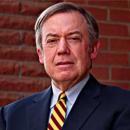

Michael M. Crow, PhD, became the 16th President of Arizona State University in 2002. An academic leader and educator, designer of knowledge enterprises, and science and technology policy scholar, Professor Crow is guiding the transformation of ASU into one of the nation’s leading public metropolitan research universities, an institution that combines the highest levels of academic excellence, inclusiveness to a broad demographic, and maximum societal impact—a model he terms the “New American University.” Under his leadership, ASU has established more than a dozen new transdisciplinary schools and large-scale research initiatives, nearly tripled its research expenditures, and completed an unprecedented infrastructure expansion.
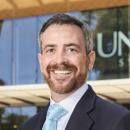

Professor Brungs commenced his appointment on 31 January 2022, joining UNSW from his position as Vice-Chancellor and President of University of Technology Sydney (UTS) (2014 – 2021). He was Deputy Vice-Chancellor and Vice-President (Research), UTS (2009 – 2014). In November 2021, Professor Brungs was appointed Emeritus Professor and Emeritus Vice-Chancellor, UTS.
He is a distinguished academic and higher education leader with extensive experience in the government and corporate sectors. He has held senior roles with CSIRO and McKinsey & Company, and leadership roles and appointments including Chair of the Australian Technology Network of Universities, the NSW Vice-Chancellors’ Committee; and member of the Universities Australia Board, the Federal Government Sustainability Research Committee, the Committee for Sydney Board, the NSW Innovation and Productivity Council, and the Federal Government’s National University Precincts Advisory Committee.
Professor Brungs’ esteemed academic career commenced with undergraduate studies at UNSW, from which he graduated with a Bachelor of Science and the University Medal in Industrial Chemistry. He then went as a Rhodes Scholar to Oxford, attaining a Doctor of Philosophy in Inorganic Chemistry. In 2018, Professor Brungs was elected a Fellow of the Academy of Technology and Engineering for his research into heterogeneous catalysis and for his leadership in the higher education sector.
Professor Brungs’ fundamental belief that universities exist as a public good for the benefit of all drives his passion for higher education and research. He has been an ardent advocate of the contribution universities made to the COVID-19 response in Australia and globally, and for the critical role they will have in Australia’s recovery and growth in the coming years. He is a dedicated innovator who believes universities have the responsibility to prepare their students for the jobs of the future as well as to be instrumental in creating those opportunities.
The returning UNSW alumnus is excited about working with the UNSW community to further enhance the University’s reputation as a dynamic, progressive hub of education and research excellence. He is committed to harnessing the vast talents and ideas of students, staff, alumni, Council and partners to realise the UNSW vision to have a positive impact on the world around us.
Professor Brungs is keen to build on UNSW’s strong collaboration and research commercialisation credentials, finding more opportunities to partner with government, industry and other academic institutions to create real benefits for Australia and for communities around the world.
Professor Brungs is honoured to have returned to UNSW to lead the University in its mission to improve lives globally, through innovative research, transformative education and a commitment to a just society.
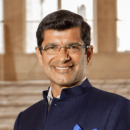

Professor Shitij Kapur is the President & Principal of King’s College London. He returned to lead King’s in June 2021, following more than four years at the University of Melbourne, where he was Dean and Assistant Vice Chancellor (Health) for the Faculty of Medicine, Dentistry and Health Sciences and interim Deputy Vice Chancellor (International). Professor Kapur is well known at King’s having previously served, between 2007 to 2016, as Assistant Principal (Academic Performance), Dean and Head of School for the Institute of Psychiatry and the founding Executive Dean of the Institute of Psychiatry, Psychology & Neuroscience (IoPPN). During his time in Melbourne Professor Kapur significantly increased the educational footprint of the Faculty of Medicine, Dentistry and Health Sciences, introducing innovative models of learning, increasing both research income and impact, while doubling philanthropic support. In collaboration with colleagues across the university and medical research Institutes he was involved in creating the Centre for the Digital Transformation of Health and establishing the Aikenhead Centre for Medical Discovery. He Co-Chaired the Australian Million Minds Mission and during the Covid pandemic took a lead role in bringing together scholars from the Group of Eight Universities to deliver the ‘Roadmap to Recovery – a Report for the Nation’.
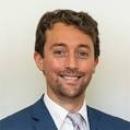

Dr Andrew Dansie is a Senior Lecturer in Humanitarian Engineering. He has 13 years of experience in the water and development sector spanning the private sector, multilateral organisations, universities and an NGO. His time as a Research Fellow with the United Nations University Institute for Water, Environment and Health saw him work with projects and partners across six continents. As Project Director of a four-year global assessment of transboundary water projects, he coordinated over 100 scientists and stakeholders to better understand the scientific needs for managing the world’s rivers, lakes, aquifers, coastal and ocean environments. Dansie completed his PhD at the University of Oxford. His research was on the marine fertilisation affect of dust originating from ephemeral rivers in Southern Africa. Dansie completed his Masters at the University of Adelaide, where was the Medal recipient for outstanding research, and holds a BSc from Flinders University in South Australia. He is an Honorary Research Associate at the University of Oxford and is on the UNDP vetted expert roster for international freshwater resources management.
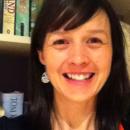

Katie Dawson is a Clinical Psychologist specialising in treatment of posttraumatic stress reactions and complicated grief in children and adults, and with particular interest in transcultural and global mental health. She currently holds a post-doctoral position at the University of NSW, Australia, where she leads research and treatment trials with children and adolescents from refugee backgrounds. She is also the child and adolescent program director for the Refugee Treatment and Recovery Program. She is currently consulting with the World Health Organization on several low-intensity psychological interventions for adults and youth living in humanitarian settings. She is passionate about improving access to evidence-based psychological interventions and capacity building of para-professionals in low- and middle-income countries.
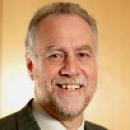

Mark Searle is Executive Vice President and University Provost at Arizona State University and holds the rank of Professor in the School of Community Resources and Development. Prior to this current administrative appointment, Dr. Searle served as Interim University Provost, Deputy Provost and Chief of Staff, and Vice-President for Academic Personnel. He holds a Ph.D. from the University of Maryland. Earlier in his career at ASU, Mark served as the Founding Dean of the College of Human Services and as Vice President and Provost of ASU’s West campus.
Dr. Searle joined ASU after an extensive career in Canada where he was the Founding Director of the multidisciplinary Health, Leisure, and Human Performance Research Institute and head of an academic program in Recreation Studies at the University of Manitoba. Prior to his university appointment, Dr. Searle served in various management positions within municipal and provincial government. The Provincial Government of Manitoba, the National Therapeutic Recreation Society and the University of Manitoba have honored Dr. Searle for his achievements. He has been elected as a fellow of the Academy of Leisure Sciences and the Academy for Park and Recreation Administration. Dr. Searle is widely published on the relationship between leisure behaviour and the psychological well being of older adults.
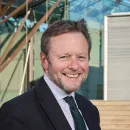

Colin Grant is the DVC Global, UNSW Sydney. Previously he was Vice Principal International at Queen Mary University of London. He was Chair of the British Council Education Advisory Group and Trustee of the Council for At Risk Academics (CARA) 2018-2022 . He served on the DAAD Strategic Partnerships Committee. He was Inaugural Chair of the Russell Group International Forum until early 2019 and was Universities UK (UUK) lead for Latin America (2014-2017). He has extensive leadership experience in Brazil, China, India, Republic of Korea, Pakistan, Malaysia, Singapore and South Africa. He was a long-standing member of the UUK International Strategic Advisory Board until August 2019. Professor Grant was an exchange student in Leipzig and pursued his doctoral fieldwork at the Humboldt University and Zentralinstitut für Literaturgeschichte in Berlin in 1990. He was DAAD Post-Doctoral Fellow at the University of Siegen in 1996 and 1997 specialising in communication theory and society. Professor Grant is the author of several monographs covering literature, political science, psychology, epistemology and the theory of communication.
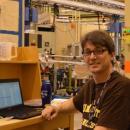

Sean Blamires attained a PhD in Biology from the University of Sydney in 2007. He also has a Graduate Diploma of Education (University of New South Wales, 2003). He has held research positions at Tunghai University, Taiwan (2009-2014), University of Akron, USA (2011), and the University of New South Wales (2014-2018), along with teaching positions at New York University (2014-2020) and Notre Dame University (2020). Dr Blamires’ research interests range from the physiological ecology of spider silk and webs to the genetic engineering of silk products. He is the founder of the Spider Silk Research Lab, which has collaborations across 5 continents and engages in cross-disciplinary research on silks and other materials. Dr Blamires has authored over 70 Scientific papers with over 100 collaborators, including publications in prominent journals such Annual Review in Entomology, Current Biology, and Chemical Communications. His papers have been cited over 1200 times.
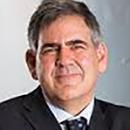

Professor Simnett is Macquarie Group Foundation Scientia Professor of Accounting and Academic Director, Centre for Social Impact, at UNSW Australia Business School. His work has had a major influence on policy particularly on standard-setting, regulatory auditing and assurance boards. His research has significantly shaped international standard setting and regulation. Professor Simnett was the first academic appointed as a member of the International Auditing and Assurance Standards Board (IAASB) and he recently co-chaired the task force that developed the assurance standard on greenhouse gas emissions disclosures for the IAASB (now adopted in over 80 countries). He was a member of the International Integrated Reporting Council working group and technical task force during 2011-2014, to develop corporate reporting model beyond financial reporting.
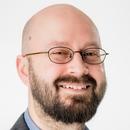

Dr Leigh Aldous is a Senior Lecturer in Chemistry at King’s College London. He obtained his Ph.D. in Chemistry & Chemical Engineering from Queen’s University Belfast in 2007, after which he was a Post-Doctoral Research Fellow at Queen’s University Belfast and the University of Oxford. In late 2011 he moved to UNSW Sydney to start his own research group, where he is currently an adjunct Senior Lecturer. He has been a Senior Lecturer at King’s College London since 2017 and his research interests include Thermo-electrochemistry and Biomass Utilisation (for waste energy harvesting and sustainability). He is currently investigating the conversion of chemicals into useful energy and combines this with the principles of ‘green chemistry’ or ‘sustainable chemistry.’


Jeffery L. Yarger is a professor of chemistry, biochemistry and physics at Arizona State University. He holds a joint appointment in the School of Molecular Sciences and the Department of Physics. He is also the founding and current director of the Magnetic Resonance Research Center (MRRC).
His primary research interests are in biophysical chemistry, nano-materials, biopolymers and the general field of disordered or amorphous materials. His current research interests includes (i) fundamental structural and dynamical characterization of amorphous materials with an emphasis on biopolymer (i.e., spider silk), amorphous pharmaceuticals and polyamorphic systems; (ii) Development of Nuclear Magnetic Resonance (NMR), X-Ray Diffraction (XRD), Neutron Scattering, Brillouin Scattering, Vibrational Spectroscopy and Calorimetric techniques to better characterize amorphous materials; (iii) Synthesis and molecular level characterization of nano-materials and nano-composites; (iv) The applications of amorphous materials and molecular level characterization techniques to biomedical instruments and human health; and (v) Materials under extreme conditions.


Professor Greg Leslie is a Professor in the School of Chemical Engineering at UNSW Sydney. He is the Director of the UNESCO Centre for Membrane Science and Technology and is engaged in research water and nutrient recycling by improving the performance of membranes used for desalination and recycling water and nutrients from municipal and industrial waste. In agriculture his development of a Reverse Osmosis Capable Drip Irrigation System, lets plants draw water through salt filters in irrigation pipes at their roots, using tiny amounts of energy naturally created by evaporation at their leaves.


Scientia Professor David Waite from the UNSW School of Civil and Environmental Engineering is leading a team working at the intersection of nanotechnology, materials science and environmental engineering, developing new composite materials made from silver nanoparticles anchored onto the low-cost silica from rice husk ash (RHA). When burned, the ash from rice husks has a high concentration of silica, which is thought to be an excellent supporting material for ultra-fine silver nanoparticles. These nanoparticles have become well-known for their anti-bacterial properties and applications in water treatment, but at the size where these particles are most effective (diameters less than 20 nm), they have a tendency to aggregate, which decreases their disinfecting potential. The rice husk ash prevents aggregation of the silver nanoparticles, the rice husk ash support slows down the release time of dissolved silver, enhancing the long-term anti-bacterial applications of the particles. The technology is ideal for supplying clean, affordable drinking water to remote communities or for providing purified water after a disaster or emergency.
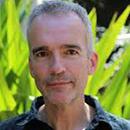

Professor David Sanderson is the inaugural Judith Neilson Chair of Architecture and Design at UNSW. David has worked for 25 years in development and disaster risk reduction across the world, working mostly for aid agencies. David was trained in architecture and holds a PhD in urban livelihoods and vulnerability. David’s research has focused on urban livelihoods, shelter and disaster risk reduction. Between 1998 and 2006 he worked for CARE International UK as Head of Policy and was subsequently Regional Manager for Southern and West Africa. Before that he worked for four years at the Oxford Centre for Disaster Studies. From 2006-2014, he was Director of the Centre for Development and Emergency Practice (CENDEP) at Oxford Brookes University, which was followed by 18 months as Professor at the Norwegian University of Science and Technology (NTNU). IN 2013-14, David was Visiting Professor at Harvard University’s Graduate School of Design.
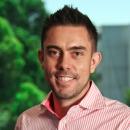

Professor Cameron Holley is the Co-Director of Postgraduate Studies at UNSW Law, Chair of the Environmental Law Research Cluster at UNSW Law and a member of the leadership teams of the Connected Waters Initiative Research Centre and the Global Water Institute, UNSW. His research is in the areas of environmental law and water governance. Within these fields, he has examined issues of compliance and enforcement, environmental security, resilience, democratic participation, adaptive management and collaborative governance. An empirical researcher, Cameron works closely with international government and non-government organisations on research projects. His current agenda is centred on water law and energy governance (under an ARC Discovery) and identifying best practices in the regulation of water scarcity by comparing laws in Europe, USA and Australia. In 2014, he was awarded the IUCN Academy of Environmental Law Scholarship Award for my contribution to environmental law scholarship.
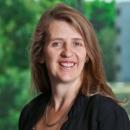

Bronwen Morgan is Professor of Law and an Australian Research Council Future Fellow. She is a socio-legal scholar with a longstanding interest in regulation and governance, changes in state formation and the increasing economisation of political discourse and practices. Her current research interests spring from a dual interest in the socio-political implications of ecological crisis on the one hand, and on the other hand, practices that mix elements of social activism and social enterprise. She is exploring the ways in which these practices engage with (socio)-legal and regulatory frameworks, particularly as they move along a trajectory of increasingly formalised activity. The empirical focus of her current research is on transport, energy, food and space (www.activismandenterprise.weebly.com), and previous work has focused on water and more broadly on the regulatory governance of essential services, especially in the Global South. She is also interested in the sharing economy, and the degree to which its trajectories may promote or undermine a social and ecologically sustainable economy. She is running a conference in August 2016 on these issues: Building the New Economy: Activism, Enterprise and Social Change.
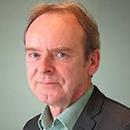

Professor Bill Randolph is Director of the City Futures Research Centre in the Faculty of Built Environment at the UNSW. He is also Deputy Director of the UNSW/UWS AHURI Research Centre and leads a research team specialising in housing policy, urban development and metropolitan planning policy issues. Bill has 30 years’ experience as a researcher on housing and urban policy issues in the academic, government, non-government and private sectors. He was Director of the Urban Frontiers Program at the University of Western Sydney for six years and Head of Research at the National Housing Federation in London (the national peak body for non-profit affordable housing landlords) for eight years. During this time he spent a period of sabbatical leave at the Australian National University researching housing affordability and community housing in Australia. Bill has also worked as a research fellow at the Open University and the UK Department of the Environment.


Professor Wei Gao is a medically trained statistician and epidemiologist and Reader at the Cicely Saunders Institute (CSI), King's College London. Her research field is palliative and end of life care, with a focus on using data collected in routine practices to improve care and clinical trials of complex intervention. She is deputy lead of the palliative and end of life care theme, the CLAHRC South London (http://www.clahrc-southlondon.nihr.ac.uk/) and the methodology group lead within the ASSET programme (https://www.healthasset.org/), the King's Global Health Institute. Dr Gao is a named investigator on £20 million live grants. She is currently working on a PLuS Alliance project as a co-investigator mining the trajectories to ""a good death"" using health and social care big data. This is a project involving lead partners from the CSI, Centre for Big Data Research in Health (UNSW Sydney), Department of Computer Science and Engineer (Arizona State University).
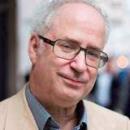

Simon Wessely is a psychiatrist and epidemiologist. He started his psychiatry training at the Maudsley in 1984, and joined King’s College School of Medicine, as it was then called in 1991. He has been at the Institute of Psychiatry, Psychology and Neurosciences, King’s College London, ever since.
He did pre-clinical at Trinity Hall Cambridge, with a BA in History of Art, and then BM BCH at University College Oxford. His Masters and Doctorate are in epidemiology.
He is a fellow of the Royal College of Physicians, Royal College of Psychiatrists and Academy of Medical Sciences. In 2021 he became a Fellow of the Royal Society (FRS).
His is the first ever Regius Chair to be appointed at KCL, and the first Regius Chair of Psychiatry in this country. He established the King’s Centre for Military Health Research in 1996, and remains the Co-director, and since 2013 has been the Director of the PHE NIHR Health Protection Unit for Emergency Response and Preparedness, which has been very active during the COVID-19 crisis.
He is a Past President of the Royal College of Psychiatrists and the Royal Society of Medicine. Between 2017 -19 he led the Independent Review of the Mental Health Act, which paved the way for new legislation in 2022.
As of Jan 2021 he has 850 professional publications,. >41,000 citations: H index 100 (Scopus), 138 (Google).


Professor Simon Killcross is Head of the School of Psychology at UNSW. He received a BA and PhD in Experimental Psychology from the University of Cambridge, before taking up a research fellowship at Magdalene College Cambridge. He was appointed a lecturer in Psychology at the University of York in 1996, and Senior Research Fellow at Cardiff University in 1999. He was appointed Professor and Deputy Head of the School of Psychology at Cardiff before moving to UNSW as Head of School in 2009. His research examines preclinical models of fronto-striatal function, as well as translational models of human mental disorders such as schizophrenia. He has published over 100 journal articles and book chapters, and has received research funding from major government granting agencies (e.g. ARC, NHRMC in Australia, BBSRC, MRC in the UK), international charities (e.g. NARSAD, Wellcome Trust) and industry partners (e.g. Lilly, Wyeth, MSD).
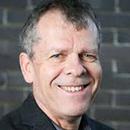

Professor Bryant is Director of the Traumatic Stress Clinic and Scientia Professor of Psychology at UNSW Sydney. His research has focused on identification of people at risk of mental health problems after trauma, early intervention strategies, treatment strategies for posttraumatic stress, and complicated grief. His research has resulted in many national and international awards. He was elected to Fellow of the Academy of Social Sciences in Australia in 2005, and he also holds an ARC Professorial Fellowship. Professor Bryant also works on many major national and international projects, including developing the Australian NHMRC PTSD treatment guidelines, web treatments for US troops returning from Iraq, tsunami survivors in Thailand, developing counselling programs for disaster survivors in the USA after Hurricane Katrina, and web-based treatments for complicated grief patients in the USA.
YouTube interview December 2020
Richard Bryant, Scientia Professor of Psychology at UNSW Sydney in conversation with Paul Ramadge


Professor of Defence Mental Health
Professor Neil Greenberg is a consultant occupational and forensic psychiatrist. Neil served in the United Kingdom Armed Forces for more than 23 years and has deployed, as a psychiatrist and researcher, to a number of hostile environments including Afghanistan and Iraq. Neil is an advisor to the Academic Department of Military Mental Health and also runs March on Stress (www.marchonstress.com) which is a psychological health consultancy.
Neil has published more than 200 scientific papers, book chapters and has presented to national and international audiences on matters concerning the psychological health of the UK Armed Forces, organisational management of traumatic stress and occupational mental health. He has been the Secretary of the European Society for Traumatic Stress Studies and the President of the UK Psychological Trauma Society. He is the Royal College of Psychiatrists’ Lead for Military and Veterans Health. He is also a trustee with Walking for the Wounded and an independent director of the Forces in Mind Trust.


Nancy Gonzales, PhD, is Executive Vice President and Provost of ASU. An alumna of ASU, Professor Gonzales earned her bachelor’s degree in psychology. She received her PhD from the University of Washington. Gonzales is also the co-director at the Prevention Research Center, which focuses on preventative interventions for children who are at risk of developing mental health problems because of exposure to the high-stress situations of parental divorce, parental death, and inner-city Mexican American children in transition to high school. Gonzales’ research examines cultural and contextual influences in social, academic, and psychological development of youth across their lifespan. The aims of this work are to translate findings into community-based interventions that are effective at promoting successful adaptation and reducing social inequalities and health disparities for high-risk populations.


Professor Michelle Moulds is a Professor and Director of the Master of Psychology (Clinical) program in the School of Psychology at UNSW Sydney. Her research program is to advance understanding of how rumination and memory disturbances maintain depression. She conducts basic science experiments in the laboratory with the long-term goal of translation to empirically supported, evidence-based interventions for depressive disorders. In 2010 she received a Young Tall Poppy Science Award from the Australian Institute of Policy and Science, and was also named the Young Tall Poppy of the Year for NSW. She was a finalist and first runner-up in the Scopus Young Researcher of the Year Award (Humanities and Social Sciences) in 2012 and in 2013 received the Early Career Award from the Stress and Anxiety Research Society and was made a Fellow of the Association for Psychological Science.
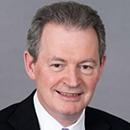

Professor Farrell is the Director of the National Drug and Alcohol Research Centre (NDARC) at UNSW Sydney. His research is in the area of understanding the epidemiology of alcohol and drug use, mental disorders, and harms related to alcohol and drug use. He has contributed to the formulation of both UK and Australian national drug and alcohol policy as a researcher and advisor to Federal and state governments. He has been an expert advisor to the WHO, and as Scientific Advisory Committee Chair of the European Centre of Drugs and Drug Addiction. NDARC is now recognised as being amongst the top 5 international research centres on substance abuse.
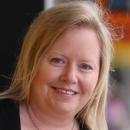

Professor Louisa Jorm is Foundation Director of the Centre for Big Data Research in Health at UNSW. She is an Australian and international leader in research using large-scale linked health data, including hospital inpatient, mortality, Medicare and cohort study data. She brings a unique combination of senior leadership experience both within and outside government and high-level technical expertise in epidemiologic methods, data linkage, biostatistics, use of large administrative data sets, methods for analysis of longitudinal and cohort study data and facilitating the policy and practice uptake of research. In the last 5 years she has published more than 60 scientific papers and been awarded more than AUD10 million in research funding. She has played a key role in building infrastructure and capacity for health ‘big data’ research in Australia, including the New South Wales (NSW) Centre for Health Record Linkage, the Secure Unified Research Environment (SURE) data laboratory, the UNSW E-Research Institutional Cloud Architecture (ERICA) and the NSW Biostatistical Officer Training Program. She is a high profile advocate for more and better use of routinely collected health data and has contributed to driving related policy changes in Australia, through numerous advisory roles to government.


Dr Kimberly Goldsmith is a Senior Lecturer in the Department of Biostatistics & Health Informatics at King’s College London. She is a Biostatistician and Clinical Trials specialist with extensive experience in clinical trials in mental health as well as other disease areas. Her particular areas of interest are complex psychological therapy treatments and mediation of treatment effects.She holds an Honours degree in Biology and MSc in Microbiology and Virology from McMaster University, and a Master of Public Health from Oregon Health & Science University. She was awarded a NIHR Doctoral Research Fellowship in 2011 and graduated with a PhD in Biostatistics from King’s in 2014. She has previously worked as a statistician and data manager in the areas of employment support for people with disabilities (in the United States), antimicrobial resistance, and heart and lung diseases.


Dr Kathleen Steinhöfel is a Reader in Computer Science at King’s College London and an Adjunct Professor at UNSW Sydney. She is currently also working with the Francis Crick Institute, a biomedical research centre dedicated to finding new ways to prevent, diagnose and treat conditions such as cancer, heart disease and stroke, infections and neurodegenerative conditions. Dr Steinhöfel’s research interests include: Local Search Algorithms for Combinatorial Optimisation; Energy Landscape Analysis; Applied Algorithmics; Structure Prediction in Molecular Biology and Evolutionary Computation. She is also part of a PLuS Alliance research team seeking to identify risk factors associated with genetic mutations of an efficient human-to-human transmissible form of the highly pathogenic avian influenza (HPAI) H5N1 virus, commonly known as ‘bird flu.’
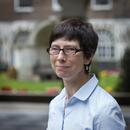

Professor Judith Green is Chair in Sociology of Health at King’s College London. Her research interests are in the sociology of public health, with a recent focus on the relationships between transport systems and health; questions of how evidence travels from one setting to another; and methodological development. She is co-PI of the Social Sciences and Urban Public Health Institute (SUPHI). Professor Green edits the journal Critical Public Health, and is co-author of the textbook Qualitative Methods for Health Research. She joined King’s in 2016, following posts at the London School of Hygiene & Tropical Medicine, London South Bank University and the United Medical and Dental Schools (UMDS) of Guy's and St Thomas' Hospitals. Professor Green has an undergraduate degree in Anthropology and an MSc and PhD in sociology as applied to medicine.


Jelle Vehof received his medical and doctoral degrees at the University Medical Center Groningen in the Netherlands. He is an ophthalmologist and epidemiologist, working with large population-based cohorts (TwinsUK at King’s College London and Lifelines in Groningen), and clinical dry eye cohorts (GLOSSY cohort in Groningen, DROPS study cohort in London). Dr. Vehof’s research focuses on the epidemiology and genetics of dry eye disease, the link between chronic pain and dry eye, and personalized treatment and determinants of treatment efficacy in dry eye. He was a member of the TFOS DEWS II epidemiology subcommittee. Dr. Vehof is currently an NIHR Clinical Lecturer in ophthalmology at King’s College London, UK.


Ivor Mason is a Professor of Developmental Biology at King’s College London. His research concerns embryonic brain development and he is a world leader in the field of fibroblast growth factor signaling in the embryo. He lectures and leads workshops and practical classes in subject areas spanning molecular and cell biology, developmental biology, genetics and evolution, histology, anatomy and neurobiology. He is currently developing online teaching resources for medicine. Professor Mason has served as Secretary of the British Society for Developmental Biology and for the UK Medical Research Council as a member of its Neuroscience and Mental Health Grant Panel and Advisory Board, its Molecular and Cell Biology Advisory Board and has chaired its Studentship Award Panel. Professor Mason also has an interest in science communication and is developing an undergraduate module in that area. He writes for The i national newspaper in the UK and was previously a British Science Association Media Fellow.
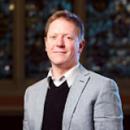

Dr Ian Henderson completed his PhD in Australian Literature in 2001 before taking up a lectureship at Griffith University in Brisbane. He joined King’s in 2004, lecturing in the Department of English, developing Australian Literature modules and expanding engagement with Indigenous Australian writing and film-making, and building a postgraduate research cohort.
He became Director of the then Menzies Centre for Australian Studies in 2016, overseeing its 2019 transformation into the Menzies Australia Institute, hosted in the School of Global Affairs, and the development of strategic partnerships between King’s, leading Australian universities and national cultural institutions (Australian Institute of Aboriginal and Torres Strait Islander Studies, National Museum of Australia, National Archives of Australia).
He continues to lecture in the Department of English on Australian literature and on Victorian literature and culture, and co/supervises research students enrolled in English, Film Studies and/or History at King’s.
Ian’s dual focus on nineteenth-century racialised theories of mind (particularly the imagination) and on approaching Australian Indigenous Knowledges have coalesced as a commitment to develop new, ‘decolonised’ forms of research and teaching.
His current project explores what decolonised ‘literary historical studies’ might look like by tracing the impact of working with Indigenous experts in health, education and IT to establish King’s Indigenous.


Professor Worth is the Head of the International HIV Research Group in the School of Public Health and Community Medicine, at UNSW Sydney. Professor Worth’s research has been primarily in the area of HIV social and behavioural research in Asia and the Pacific, with a focus on gender, sexuality and global HIV. Professor Worth’s research activities span many areas of Global Health including understanding HIV in China: the Social Aspects of the Epidemic Mobility; HIV risk across the Papua New Guinea/Indonesia border; and strengthening HIV social research capacity amongst HIV social research leaders in Papua New Guinea and Fiji.
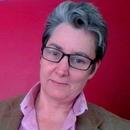

Professor Bronwyn Parry is a Professor of Global Health and Social Medicine at King’s College London and Head of the School of Global Affairs. Her primary research interests lie in investigating how human-environment relations are being recast by technological, economic and regulatory change. She has developed expertise in a number of key areas: the rise and operation of the life sciences industry, informationalism, the commodification of life forms, posthumanism, applied bioethics, legal approaches to the regulation of nature, and the public understanding and reception of science. Professor Parry has undertaken comparative work on the role of international regulatory regimes, and acted as a consultant for the UN and the UK government in this capacity. She was awarded a major grant from the Wellcome Trust to investigate the social, ethical, and legal complexities of human tissue banks in the UK and has completed a collaborative international bioethics project that investigates the production, consumption, and regulation of assisted reproductive services in rural and urban centers within India.
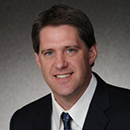

Brian J. Gerber is an associate professor at the College of Public Service and Community Solutions, Arizona State University, where he is director of the Emergency Management and Homeland Security program. Gerber received his Ph.D. from Stony Brook University (SUNY) in 2000. His research specialization areas include disaster policy and management, homeland security policy and administration, and environmental regulatory policy and has published such research in a number of academic journals. Prior to arriving at ASU, he served as executive director of the Buechner Institute for Governance at the University of Colorado Denver, as research director for the Stephenson Disaster Management Institute at Louisiana State University, was a research associate with West Virginia University’s Regional Research Institute, was a research fellow with the National Science Foundation’s “Next Generation of Hazards Researchers” program and has served as a subject matter expert on a variety of projects. He sits on the executive committee of the National Council for Public-Private Partnerships, was a five-year member of the Denver Board of Environmental Health. Gerber has extensive experience performing policy analysis and program evaluation work for state and local government agencies, as well as major national nonprofits engaged in disaster relief and recovery work.
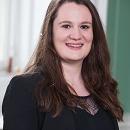

Dr Leslie-Anne Duvic-Paoli is Lecturer in Law at The Dickson Poon School of Law and the Deputy Director of its Climate Law and Governance Hub. She is also a Fellow of the Cambridge Centre for Environment, Energy and Natural Resource Governance (C-EENRG) and Assistant Editor for the Transnational Environmental Law journal (Cambridge University Press). Leslie-Anne is a public international lawyer, with expertise in international environmental law, including climate and energy law. She is particularly interested in understanding the nature and content of environmental principles: her monograph, entitled The Prevention Principle in International Environmental Law, was published by Cambridge University Press in 2018. Leslie-Anne’s research also looks at the energy transition to a low-carbon economy from an international and comparative law perspective. She works on the global legal implications of energy democratisation and the importance of participatory mechanisms in the design of inclusive energy systems.


Professor Kristy Muir is the Research Director of the Centre for Social Impact at UNSW Sydney. Her research and teaching programs work with dozens of government, not-for-profits, corporates and philanthropic organisations to help understand, measure and find innovative solutions to some of society’s most intractable, complex social problems and to achieve social justice. Professor Muir has obtained over $10 million in competitive research funding; published in the highest-ranking international academic journals and demonstrated exceptional leadership.
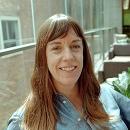

Dr Katie Meehan is Senior Lecturer in Human Geography at King's College London and director of the Plumbing Poverty Project. With a focus on social justice and infrastructure provision in cities, her research explores urban water insecurity and how households innovate new water supply technologies and governance practices in the context of social and racial inequality. By coupling innovative methods in ethnography and spatial data science, the Plumbing Poverty Project is the first of its kind to explore the social geography of incomplete water and sanitation provision in the USA and Mexico. A two-time Fulbright scholar and former Peace Corps Volunteer, Meehan earned her bachelor's degree from the University of Oregon and graduate degrees from the University of Oxford and the University of Arizona. She is on the leadership team of the NSF-sponsored Household Water Insecurity (HWISE) Network, which seeks to catalyze social science discovery at the intersection of policy and practice.
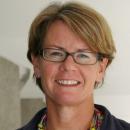

Justine Nolan is an Associate Professor and Associate Dean (Academic) in the Faculty of Law at UNSW Sydney. She is a Visiting Professorial Scholar at NYU. Her research focuses on business and human rights and she is one of the world’s leading scholars in the field. She teaches across a variety of courses including international human rights and business and human rights. She developed the Law Faculty’s first online course in 2017. She is on several NGO advisory boards and has acted as an expert advisory member for Australian government advisory bodies including most recently in 2017. Prior to her appointment at UNSW in 2004 she was the Director of the Business and Human Rights Program at Human Rights First in the US. She is an editor of the Australian Journal of Human Rights and the Business and Human Rights Journal.
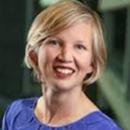

Professor Fleur Johns is a Professor in Law at UNSW Sydney and publishes widely in the areas of international law, socio-legal studies and legal theory. Currently, she is engaged in new work on the use of data analytics in humanitarian aid and development work. She has served as Articles Editor of the Leiden Journal of International Law. She was Co-Director of the Sydney Centre for International Law at the University of Sydney and also been Distinguished Visiting Professor at the University of Toronto, a Leverhulme Visiting Fellow at Birkbeck College (University of London) and she has been invited to be Shimizu Visiting Professor of Law at the LSE in London. Prior to commencing her academic career, she practised as a corporate lawyer with Sullivan & Cromwell LLP, in New York, specialising in international project finance.
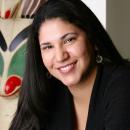

Dr. Felicia M. Mitchell joined the School of Social Work at Arizona State University in August 2016. Mitchell is committed to social justice for all oppressed and marginalized peoples and advocates for the advancement of environmental and health equity in communities of color. Her primary research interests focus on social determinants of health (inclusive of environmental determinants) and their impact on Indigenous health and well-being. Mitchell's work seeks to promote public and policy responsiveness to the health, social and anthropological dimensions of environmental change specifically related to water. Mitchell values community-based participatory research principles when partnering with communities and organizations around group-identified health and ecological concerns. Mitchell's secondary line of scholarship focuses on advancing social work education through critical reflection and engagement that seeks to dismantle settler-colonial standards in academia. Using a critical lens, she examines teaching and curriculum standards to increase accurate representations of historically underrepresented populations in the classroom and advocates for the eradication of oppressive higher education and research practices.
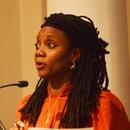

Dr Eka Ikpe is a Lecturer in Development Economics in Africa at King’s College London and the International Lead for the African Leadership Centre and the King’s Department of International Development. She has participated in a range of policy influencing projects including: contributing to a UK All Party Parliamentary Group on Africa Report on UK Trade with Africa in a Post-BREXIT era; co-authoring a research study on security and development in the Sahel for the United Nations Economic Commission for Africa; training of Liberian legislators on security sector reform oversight; contributing to the Economic Community of West African States Conflict Prevention Framework and co-authoring the Women Peace and Security Action Plan. She is on the Advisory Committee for Understanding and Supporting Creative Economies in Africa: Education, Networks and Policy Research Network (funded by the AHRC) and is on the editorial review board of the Journal of Leadership and Developing Societies. She holds a PhD in Economics from the School of Oriental and African Studies, University of London.


Professor Eileen Baldry is Chair of Criminology in Social Sciences, at UNSW Sydney. She has pioneered multidisciplinary research and teaching in social justice and equity across social policy, criminology, disability studies, housing and homelessness, Indigenous studies and international, social and community development. In particular, Eileen’s teaching, research and publications focus on social justice matters including mental health and cognitive disability in the criminal justice system; education, training and employment for prisoners and ex-prisoners; homelessness and transition from prison; Indigenous social work; community development and social housing; and disability services. Professor Baldry was awarded NSW Justice Medal for improving access to justice for vulnerable people. She was shortlisted in the category of Innovation in the 2016 Australian Financial Review's 100 Women of Influence.


Dr David Whetham is Director of the King’s Centre for Military Ethics and a Reader in Military Ethics in the Defence Studies Department at King’s College London. He has a PhD in War Studies from King’s and his main research interests are focussed on the ethical dimensions of warfare and the development of the laws of war. Dr Whetham has previously worked as a BBC researcher and with the Organization for Security and Co-operation in Europe (OSCE) in Kosovo, supporting the 2001 and 2002 elections. He has been a Resident Fellow at the Stockdale Center for Ethical Leadership at the US Naval Academy, Annapolis, a Visiting Fellow with the Centre for Defence Leadership and Ethics at the Australian Defence College, Canberra, and a visiting lecturer in military ethics at the Baltic Defence College and for the Royal Brunei Armed Forces. He is also a co-founder of the European Chapter of the International Society for Military Ethics and is a member of the Military Ethics Education Network steering group.
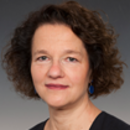

Andrea Ellner, PhD in Political Science (Berlin), MA in History (Munich), is a Lecturer in the Department of Defence Studies at King’s College London. Her research focuses on civil-military relations, specifically moral injury, gender integration in armed forces, and the Women, Peace & Security (WPS) Agenda, including sexual violence in militaries and armed conflict. She has disseminated her research and provided expert advice to peers and practitioners nationally and internationally. Dr Ellner contributed to and co-edited with Professors Brad Allenby (ASU, Phoenix) and Tom Frame (UNSW, Canberra) the White Paper 'Moral Injury: Towards an International Perspective,' released at New America, Washington DC, in conjunction with the PluS Alliance in 2017. Also in 2017 she contributed to a panel on moral injury at the Future of War Conference, Washington DC, presented on the WPS Agenda and Just War Theory at the annual Euro-ISME conference, Brussels, and provided subject matter expertise on research and Professional Military Education (PME) on WPS at the Australian Defence Force Academy-UNSW, Canberra. In Defence Studies she is academic lead on gender, armed forces and violent conflict. She is a member of the Core Team (Gender SME) in the Centre for Military Ethics, King’s College, London.
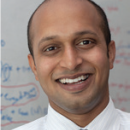

A/Prof Vinayak Dixit is the Director of the Research Centre for Integrated Transport Innovation (rCITI), Director Travel Choice Simulation Laboratory (TRACSLab) at the School of Civil and Environmental Engineering at UNSW Sydney, as well as an Academic Director at Insurance Australia Group (IAG). His research focuses on studying risk in the transportation infrastructure system as it relates to automated vehicles, highway safety, travel time uncertainty, as well as natural and man-made disasters and he is well-published in these areas. His work with individual level data has led him to deeply explore questions around data ethics, integrity and ownership. His education activities involve the development of the Master of Engineering Science – Transport, as well as education opportunities and micro-credentials for industry and overseas partners. His projects have been funded by the Australian Research Council, United States National Science Foundation, as well as transportation agencies across the world including Australia, U.S., Indonesia, India and U.A.E.


Professor Stephen Loo is Professor of Interdisciplinary Design and Art at UNSW Sydney. For more than 25 years, Stephen has researched, taught and practiced in the transdisciplinary nexus of art, architecture, design, philosophy, performance and science. He has published widely on biophilosophy, posthumanist ethics, ecological humanities and experimental digital thinking. Recent books include Deleuze and Architecture(2012) and Poetic Biopolitics (2016) and he is currently working on Speculative Ethologies (2018 with Dr Undine Sellbach). Stephen is a founding partner of award-winning design, architecture, interpretation and exhibition practice Mulloway Studio. He has a performance-philosophy based art practice and has shown internationally in Paris, Berlin, London, Sydney and Adelaide. Stephen has played a key role in national and international policy settings in architecture and design education as a past Chair of the National Education Committee, Australian Institute of Architects (AIA), and President of the Australian Deans of the Built Environment and Design (ADBED).
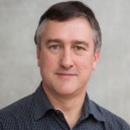

Professor Scott Kable is the Head of Chemistry at the University of New South Wales. His research is focussed at understanding fundamental reaction mechanisms and reaction intermediates in the gas phase, with a particular emphasis on atmospheric processes. Professor Kable is also a passionate teacher and educator. He is a founding Director of the Advancing Science by Enhanced Laboratory Learning (ASELL) Project, which shares best practice and provides professional development in laboratory education to chemistry, physics and biology academics around the country. Prof Kable is on the Board of the Royal Australian Chemical Institute and has twice served on the Australian Research Council College of Experts.
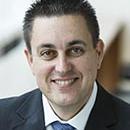

Richard Holden is Professor of Economics at UNSW Business School and an Australian Research Council Future Fellow from 2013-2017. Prior to that he was on the faculty at the University of Chicago and the Massachusetts Institute of Technology. He received a PhD from Harvard University in 2006, where he was a Frank Knox Scholar. His research focuses on contract theory, law and economics, and political economy. He has written on topics including: political districting, the boundary of the firm, incentives in organizations, mechanism design, and voting rules. Professor Holden has published in top general interest journals such as the American Economic Review and the Quarterly Journal of Economics. He is currently editor of the Journal of Law and Economics, and is the founding director of the Herbert Smith Freehills Initiative on Law & Economics at UNSW. He has been a Visiting Professor of Economics at the MIT Department of Economics and Visiting Professor of Law at the University of Chicago Law School. His research has been featured in press articles in such outlets as: The New York Times, The Financial Times, the New Republic, and the Daily Kos. Professor Holden appears regularly on PVO News Day on Sky News and writes for The Australian Financial Review. He also writes a weekly column analyzing global economic data called Vital Signs for The Conversation.
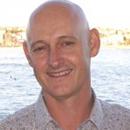

Professor Lovell obtained his Bachelor of Engineering (Hons) in 1984, and his PhD in Engineering (specialising in cardiac neurophysiology and biomedical engineering). Lovell’s research expertise can be categorised into 3research themes based around neural prosthetics, physiological modelling and telehealth. He has published 218 journal articles, 277 refereed conference proceedings, 6 books/proceedings, 22 book chapters and >150 abstracts. Lovell is a most prominent biomedical engineer on the world stage being a fellow of six learned academies/societies and having taken on major leadership roles in professional organisations related to biomedical engineering, particularly the Engineering in Medicine and Biology Society.
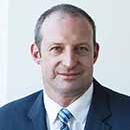

Professor Nick Wailes is Associate Dean (Digital and Innovation) at UNSW Business School and Academic Director of AGSM’s specialised online MBA, MBAX. Nick’s role is to the lead the digital transformation of the Business School. Prior to joining UNSW Nick was the MBA Director at the University of Sydney Business School. Nick research interests including international and comparative employment relations and the impact of new and emerging technologies on organisation. Nick regularly comments in the media on how digital is reshaping traditional business models and industries


Maurice Pagnucco is a Professor of Computer Science and Engineering, Deputy Dean (Education) of the Faculty of Engineering and Head of the School of Computer Science and Engineering at UNSW. He joined UNSW in 2001 as a Senior Lecturer and has held the position of Head of School since 2010 and Deputy Dean (Education) since 2015. He has also held appointments at the University of Toronto, Macquarie University and The University of Sydney. He obtained his Bachelor of Science (Hons I) and PhD degrees in Computer Science from the University of Sydney. During his undergraduate studies he also spent a year at the Department of Computer Science of The University of Milan, Italy. His research is focussed on Artificial Intelligence with particular emphasis on Knowledge Representation and Reasoning, Cognitive Robotics, Belief Change and Reasoning About Actions. Maurice was the programme director of the Decision Making theme in the ARC Centre of Excellence for Autonomous Systems and a co-director of the UNSW iCinema Centre for Interactive Cinema Research. His collaboration with the UNSW iCinema Centre for Interactive Cinema Research resulted in a world-first interactive cinema piece controlled using artificial intelligence techniques that premiered at the Sydney Film Festival in 2011.
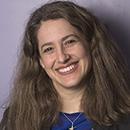

Professor Bennett Moses is from the Faculty of Law. Her research explores issues around the relationship between technology and law, including the types of legal issues that arise as technology changes, how these issues are addressed in Australia and other jurisdictions, the application of standard legal categories such as property in new socio-technical contexts, the use of technologically-specific and sui generis legal rules, and the problems of treating “technology” as an object of regulation. She works extensively around the use of Big Data and data analytics used for law enforcement and national security purposes. Lyria is involved with IEEE (an international engineering professional association) and currently serves as Chair of the Australia Chapter of the IEEE Society on the Social Implications of Technology.


Lynne Bilston is a biomedical engineer whose research focuses on how mechanical forces are involved in physiological and pathophysiological processes in the body. Her research encompasses injury biomechanics, neural and other soft tissue biomechanics, and the development of novel imaging methods for making mechanical measurements in vivo. She has a PhD in bioengineering from the University of Pennsylvania and is a National Health and Medical Research Council of Australia senior research fellow. She is a Senior Principal Research Fellow at Neuroscience Research Australia, and is a conjoint Professor at the University of New South Wales.
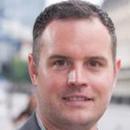

Dr Kirk Plangger is a Senior Lecturer of Marketing at King's Business School. He is a marketing management researcher specialising in consumer led digital marketing strategy.
Kirk studied consumer behaviour and marketing strategy during his PhD-level and general management during his MBA at Simon Fraser University in Vancouver, Canada. He has an honours BA in economics from Western University in London, Canada and has four years management experience in Tokyo, Japan.
Most of his research in exploring how digital technologies mediate and change the buying process and how organisations should address these technologies. Dr Plangger uses this knowledge of buying and technology in all the modules he teaches including marketing strategy, digital marketing and consumer behaviour and challenges his students to constantly apply academic concept to practical challenges. He is also the Director of the Executive MSc in International Marketing programme.
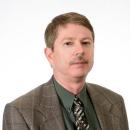

Dr. Holbert is the founding Director of the ASU Nuclear Power Generation program, and an Associate Professor in the School of Electrical, Computer and Energy Engineering. He joined the ASU faculty in 1989 after earning his Ph.D. in nuclear engineering. His research expertise is in the area of instrumentation and system diagnostics including radiation effects on sensors. Dr. Holbert has published more than 200 journal and conference papers, two textbooks, and holds two patents. Dr. Holbert is a registered professional (nuclear) engineer. He is a member of the American Nuclear Society and a Senior Member of the IEEE. Professor Holbert teaches undergraduate and graduate engineering courses on electric power generation (from all forms of energy), nuclear reactor theory and design, nuclear power plant controls and diagnostics, reactor safety analysis, and health physics and radiation measurements. Dr. Holbert has been the recipient of multiple teaching awards.
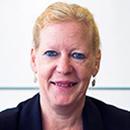

Professor Karin Sanders (School of Management, UNSW Business School) is professor of Human Resources Management (HRM) and Organizational Behaviour at the UNSW Business School, and Head of School of Management. Her research focuses particularly on the impact of employees’ perceptions and understanding (attributions) of HRM on employees’ innovative behaviour and firms’ innovation. Her research has been published in such scholarly outlets as the Journal of Vocational Behavior, Organizational Studies, Academy of Management Learning and Education and HRM (all Financial Times list journals). Karin is a recently elected board member of the Executive Board of the HR Division (Academy of Management, the professional association for management and organization scholars) and is one of the leaders of HR Division’s International Ambassadors program.
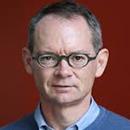

Professor Gooding is a founding co-director of the Australian Centre for NanoMedicine and an ARC Australian Laureate Fellow at the University of New South Wales. His research background has been focused specifically on surface chemistry with a particular emphasis on how to design molecular scale devices on surfaces. Much of this work has by motivated towards molecular devices that detect chemical or biological species to give sensors. In recent years this has led to sensors that detect many single molecules and many single cells. He is also the inaugural editor-in-chief ACS Sensors published by the American Chemical Society. He has published over 300 papers in electrochemistry, surface chemistry, cell biology, biosensors, nanomedicine and molecular electronics.


Jill Bennett is Professor and Director of the National Institute for Experimental Arts (NIEA) at UNSW Art & Design. Her research and practice focuses on interdisciplinary arts-led approaches to the study of human experience. She leads the Memory Lab at NIEA, and is currently investigating (with a team of cognitive neuropsychologists and artists) the use of immersive visualisation technologies to assist memory retrieval. Her most recent projects have focused on memory loss and amnesia, building on earlier pioneering work on art and traumatic memory. Through her books (such as Empathic Vision, 2005 and Practical Aesthetics, 2012) and a series of exhibitions/public projects, she has investigated the way that art engenders productive forms of empathy and social connection. She now works on “engagement science”—designing multidisciplinary research projects, which interface with the public in innovative ways. She is currently developing a major festival of arts and mental health, focused on the theme of Anxiety.
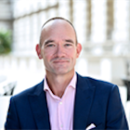

Professor Earl is an archaeologist fascinated by the ways in which cultural heritage and digital technologies collide. He has worked on a broad range of archaeological, digital humanities, digital economy and web science projects. His research, education and engagement activities all centre on cultural heritage’s digital interfaces and their contemporary implications. Whilst much of Professor Earl’s work relates to the Roman past, he has an interest in a broad range of cultural heritage contexts and topics, including:
1. Digital storytelling and education, focused on accessibility.
2. Multimodal representations of the past, including 2D and 3D imaging.
3. Art and interaction design in cultural heritage, including aspects of digital museology.
Since 2005 his activities have focused on the port of Imperial Rome, as co-director of the Portus Project.


Professor Tinney is founder and head of Exoplanetary Science at UNSW. His research is focused specifically on the use of high-precision technologies for the discovery and study of planets orbiting other stars, with his team being directly responsible for the discovery of over 50 exoplanets – most notably including the closest potentially habitable planet discovered orbiting the nearby star Wolf 1061 in 2015. Professor Tinney is closely involved with a number of professional organisations, chairing the Optical Telescopes Advisory Committee of Astronomy Australia Limited for over 5 years, and serving on the Giant Magellan Telescope Organizations Science Advisory Committee from 2009-2016. He is a past Director of the Australian Centre for Astrobiology based at UNSW, providing a broad and interdisciplinary context for his team’s research on the most likely platforms for life orbiting other stars.
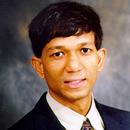

Dr. Baral is Professor and Chair of the School of Computing and Informatics Professor at Ira A. Fulton School of Engineering and Department of Biomedical Informatics, Biomedicine. Dr. Baral’s expertise is in Bioinformatics Knowledge representation, reasoning and declarative problem solving. A systematic approach to designing and analyzing autonomous agents.
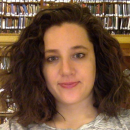

I am a Chilean-Australian historian of art based in Sydney. I am currently Lecturer, Art Theory, at UNSW Art & Design, and Research Associate at Rhodes University (Arts of Global Souths Research Group). From 2015-18 I was Vice-Chancellor’s Postdoctoral Research Fellow at UNSW, and Visiting Fellow at the CUNY Graduate Centre, working with MFA students. I am the author of over 85 publications, including the book Counter-Memorial Aesthetics: Refugee Histories and the Politics of Contemporary Art (Bloomsbury, 2016). I am currently developing a second monograph, focused on transnational collaborations between Chilean artists living in exile and under the Pinochet regime during the 1970s & 80s. In 2017 I initiated a parallel project, Future Souths, collaborating with leading diasporic and indigenous thinkers on the aesthetics and politics of the former third world or 'global souths', the results of which are currently being developed into an edited book for the highly respected Sternberg Press (Berlin, futuresouths.org).


Professor Tony Butler is a leading expert on the health of offenders and has developed numerous policy-relevant projects in the justice health area. He is the program head of the Justice Health Research Program at the Kirby Institute and leads a team of twelve researchers including PhD and post-doctoral researchers. He is an NHMRC Principal; Research Fellow. He developed Australia’s only two national offender health data collection initiatives including the National Prison Entrants Bloodborne Virus Survey. He has led novel studies examining mental illness among prisoners, the role of head injury in offending, an RCT of a pharmacotherapy-based trial for impulsive-violent offenders, and text mining police domestic violence event narratives. He leads the NHMRC-funded Australian Centre for Offender Health Research. More recently he has developed two teaching initiative: ‘Public Health and Corrections’ aimed the nexus between health and criminology, and the popular ‘Inside the Criminal Mind’ course.


Tess M.S. Neal is an assistant professor of psychology at ASU, where she directs the Future of Forensic Science Initiative (https://forensics.asu.edu) and the Clinical and Legal Judgment Laboratory (https://psych-law.lab.asu.edu/). She is fascinated by the nature and limits of expertise, and her research focuses on understanding and improving human judgment processes.
Her work comprises three overlapping categories: (1) expert judgment, such as identifying systematic bias in how forensic psychologists and forensic scientists reach conclusions, problems in how judges make decisions about evidence admissibility, and understanding how policymakers rely on evidence to create policy; (2) lay judgments, such as jurors’ calibration to the strength of evidence, how people perceive experts, and how people respond to policies and laws; and (3) public policy implications of this work, such as how expert judgment processes can be structured to reduce systematic bias and error, how to improve judicial and jury decision making, and how policymakers can harness psychological science about how people behave to craft effective policy.
Her research is funded by multiple grants from the National Science Foundation, and she has published one edited book and more than three dozen peer-reviewed publications in such journals as Psychological Science in the Public Interest; American Psychologist; PLOS ONE; Psychology, Public Policy, and Law; and Criminal Justice and Behavior. She is currently serving as associate editor of the Journal of Personality Assessment and Psychology, Public Policy, and Law. She has won multiple university and national awards for her research, teaching, and mentorship.


Dr Simone Z Leao is a Research Fellow in Urban Modelling and Simulation at the City Futures Research Centre, University of New South Wales. Interested in the interdependencies between built environment, society and technology, she works on developing knowledge and methodologies to assist urban planning to generate/regenerate urban areas with awareness of contemporary challenges. Her research explores forms of using data and applying analytics in the domain of smart cities to promote sustainable and equitable development and improve quality of urban life. In education at UNSW, she assisted in the design of the new and innovative Master Degree in City Analytics and is responsible for the new courses ‘Programmable Cities’ and ‘Geocomputation’. Previously, she has developed research and academic teaching in South America, Africa, Asia and Europe. She has authored and co-authored more than 50 publications in high impact journals, books and conference proceedings.
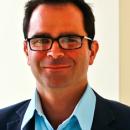

Dr Samuel Harvey, MBBS MRCGP MRCPsych FRANZCP PhD, leads the Workplace Mental Health Research Program at the School of Psychiatry, University of New South Wales. He is a psychiatrist and epidemiologist with a particular interest in the overlap between mental health, physical health and work.
After initially working as a general practitioner, Dr Harvey trained in both general adult and consultation liaison psychiatry at the Maudsley Hospital and Institute of Psychiatry in London. He completed his PhD with the University of London, with a thesis titled “Does physical activity protect against common mental disorders?” In 2009, he was awarded the UK Royal Society of Medicine Young Epidemiologist of the Year award.
Dr Harvey’s main research focus is the relationship between work and mental health. His research in this area considers the role work and workplace trauma may have in precipitating mental illness, the occupational outcomes of those already suffering from mental disorders, predictors of sickness absence and workplace based interventions for both the treatment and prevention of mental disorders. Together with Prof Mitchell and Prof Bryant, Dr Harvey is currently leading a five year program of research examining some of the specific mental health problems encountered by police, fire and ambulance officers. Further details about this program of research can be found at www.wmh.unsw.edu.au
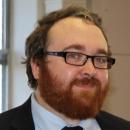

Professor Steven “Travis” Waller is the Advisian Chair of Transport Innovation, Deputy Dean (Research) of Engineering and the Executive Director for the Research Centre for Integrated Transport Innovation (rCITI) at UNSW. Prior to joining UNSW, he was on faculty at the University of Texas at Austin where he was the founding director for an U.S. National Science Foundation (NSF) Industry/University Cooperative Research Center on Transportation and Electricity Convergence (focusing on electric vehicles). Past awards and recognition include the NSF CAREER award, MIT's Technology Review list of top 100 innovators in science and engineering worldwide, TRB's Fred Burggraf award, Hojjat Adeli award for innovations in computing and giving the C.C. Mei Distinguished Lecture at MIT. In the past 18 years, Prof. Waller has secured over $23m in total research funding. He has published more than 300 peer reviewed papers, supervised 22 completed PhD students and conducted over 60 funded research projects for 30 distinct sponsors worldwide.


Rivka obtained a B.Sc. in Biochemistry from the University of Manchester in 1997 followed by a Ph.D. in Chemistry from the University of Cambridge in 2001 under the supervision of Professor Sir Alan Fersht, FRS. She carried out post-doctoral research at Harvard Medical School with Professor Pamela Silver and then at Imperial College London with Professor Steve Matthews. Subsequently, she worked at the Imperial College Drug Discovery Centre before starting her own research group in 2009 funded by an MRC New Investigator Research Grant.
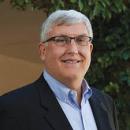

Richard C. Knopf serves as director of the Partnership for Community Development at Arizona State University and of the Osher Lifelong Learning Institute at Arizona State University. He is also a professor of community development in the School of Community Resources and Development within the Watts College of Public Service and Community Solutions at ASU. His expertise rests in advancing community quality of life by building innovative inter-generational partnerships among businesses, government, non-profit and community service organizations. Over the past decade, he has managed investments of more than $2.5 million by corporations, government, and local and national foundations in his ASU centers to promulgate this mission.
Professor Knopf has authored more than 170 publications in community quality of life, including state-of-art reviews. In recognition of the global and local impact of his work, he was bestowed with the Community Development Achievement Award from the Community Development Society in 2014. He has also formed partnerships with the work of the UNESCO Institute for Lifelong Learning and its global “Learning Communities” initiative, and serves on the steering committee for the Global Age Friendly University Network.
Much of Knopf’s teaching and research has focused on the role of community development in life quality enhancement and economic growth. His specialty areas include: healthy aging and lifespan development, inter-generational programming, community building, community development theory and practice, community needs and assets assessment, community justice and marginalization, civic engagement and volunteerism, strategic planning and visioning, community well-being, community special events management, regional planning, program evaluation and assessment, non-profit capacity building, organizational marketing and promotions, natural resources policy, university-community partnership formation, grant writing, and public philanthropy.
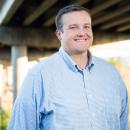

Rhett Larson is the Richard Morrison Professor of Water Law at Arizona State University’s Sandra Day O'Connor College of Law. He is also a faculty fellow in the Center for Law and Global Affairs, and the Center for Law, Science, and Innovation. He is also a senior research fellow with the Kyl Center for Water Policy at ASU's Morrison Institute for Public Policy. Professor Larson’s research and teaching interests are in property law, administrative law, and environmental and natural resource law, in particular, domestic and international water law and policy.
Professor Larson’s research focuses on the impact of technological innovation on water rights regimes, in particularly transboundary waters, and on the sustainability implications of a human right to water. He works on dispute resolution and improved processes in water rights adjudications in Arizona and the Colorado River Basin with the Kyl Center for Water Policy. He is the Principal Investigator on a USAID-funded applied research project improving water supplies for refugee host communities in Lebanon and Jordan. Professor Larson was a visiting professor and Fulbright Scholar at the Pontifical Catholic University of Ecuador, a visiting fellow with the University of New South Wales in Sydney, Australia, a Lady Davis Fellow and visiting professor at the Hebrew University of Jerusalem. He is the author of the forthcoming book from Oxford University Press, entitled Just Add Water: Solving the World’s Problems Using its Most Precious Resource.
Professor Larson also practiced environmental and natural resource law with law firms in Arizona, focusing on water rights, water quality, and real estate transactions.
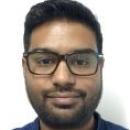

Dr Padmanesan Narsimhan is a medical doctor with a public health masters and research degree from UNSW Australia. He has a strong interest in utilizing digital health tools to strengthen health systems, especially among vulnerable and disadvantaged communities in rural and remote areas. Padma also leads research programs in Integrated management of diseases using mobile health in India and teaches rural and remote International health at UNSW. He also currently serve as the Assistant Director of the World Health Organization (WHO) Collaborating Centre for eHealth at UNSW.
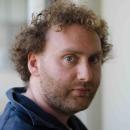

Oliver Bown is senior lecturer and co-director of the Interactive Media Lab at UNSW Art & Design. He is a researcher and maker working with creative technologies, with a diverse academic background spanning social anthropology, evolutionary and adaptive systems, music informatics and interaction design, with a parallel career in electronic music and digital art spanning over 15 years. He is interested in how artists, designers and musicians use advanced computing technologies to produce complex creative works. His current active research areas include media multiplicites, musical metacreation, the theories and methodologies of computational creativity, new interfaces for musical expression, and multi-agent models of social creativity. He is a member of the advisory board for the International Conference on Computational Creativity, and the organising committee for the Musical Metacreation series of workshops and concerts and is a program committee member for the conference NIME and GECCO (art track) amongst others.
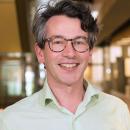

Associate Professor Ekins-Daukes joined UNSW through the Strategic Hires & Retention Pathways (SHARP) scheme and is based at the School of Photovoltaic & Renewable Energy Engineering where he conducts research into high efficiency schemes for solar power conversion. From 2008-17, Ned worked in the Physics department at Imperial College London and prior to that at the School of Physics at the University of Sydney. From 2003-06 he was a JSPS research fellow at the Toyota Technological Institute, Japan. Ned holds a PhD and MSc from Imperial College and MSci in Physics & Electronics from the University of St Andrews.


Michael Etter has a PhD in organization studies and cultural theories from the University of St. Gallen, Switzerland. He has worked as assistant professor at Copenhagen Business School and as Marie-Curie Research Fellow at Cass Business School, City, University of London. His work has appeared in academic journals, such as Academy of Management Annals, Academy Management Review, Journal of Management Studies, and Business and Society. Michael Etter has received multiple awards for his research and teaching excellence, as well as several research grants from prestigious funding institutions, such as the British Academy.
Michael Etter is interested in the construction of social evaluation of new and established firms, such as organizational reputation and legitimacy, in the new media landscape, which is shaped by new information and communication technologies (ICT). He looks at strategies, which new and established firms use to establish favourable social judgments in the digital economy. The role corporate social responsibility is thereby prevalent in his work.
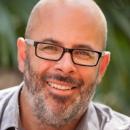

Associate Professor Kearnes is an ARC Future Fellow in Environmental Humanities, UNSW. He is a CI in the ARC CoE in Convergent Bio-Nano Science and Technology, leading research focused on the societal dimensions of nanomedicine. Situated between the fields of Science and Technology Studies (STS), human geography and environmental humanities, his research focuses on the social and political dimensions of technological and environmental change. His co-edited volume Remaking Participation: Science, Environment and Emergent Publics (Routledge, 2016) was awarded the 2018 Amsterdamska Prize by the European Association for the Study of Science and Technology (EASST). He serves on the editorial board of Science, Technology and Society (Sage) and is an associate editor of Science as Culture (Taylor & Francis). He is co-convenor of the 2018 conference of the Society for the Social Studies of Science (4S), and has held visiting positions at School of Geography, Oxford University (2015) and the Department of Sociology, Lancaster University (2011).
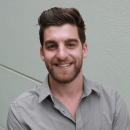

Dr Deady is postdoctoral research fellow working within the Workplace Mental Health Research Program. He has over twelve years research experience in the field of mental health and substance use disorders. In this time he has worked on a range of projects at a coronial, epidemiological, and clinical level, completing his PhD at UNSW in 2015. Dr Deady has extensive expertise in e-health project management, online service delivery and clinical trials.
His primary research interest is in improving access to evidence-based care through technology and the translation of research into practice, particularly in vulnerable populations including young people and high-risk workforces. Dr Deady has been involved in the development and evaluation of multiple mental health smartphone apps and e-health technologies. He is currently funded through an iCare Foundation postdoctoral fellowship.
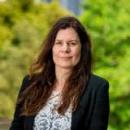

Marion Thain is Professor of Literature and Culture at King’s College London, and Executive Dean of the Faculty of Arts and Humanities. She began her career as a Junior Research Fellow at Cambridge University, and worked in English departments at Russell Group universities before moving to New York University as a professor of Arts and Literature in the school of the interdisciplinary global liberal arts (Liberal Studies) and as Director of Digital Humanities for NYU. She returned to the UK in 2018. She publishes primarily on: aestheticism; poetry and poetics; technology and the arts. Book publications include: The Lyric Poem and Aestheticism: Forms of Modernity (2016); The Lyric Poem: Formations and Transformations (2013); Michael Field: Poetry, Aestheticism, and the Fin de Siècle (2007); Poetry of the 1890s (1998).


Dr Lois Meyer is the inaugural Director the Bachelor of International Public Health (BIPH). She is responsible for steering through the first PLuS Alliance degree to be developed, approved and offered by UNSW in partnership with Arizona State University (ASU) and drew upon her extensive background in curriculum design and accreditation in public health within Australia and internationally. As Senior Research Fellow in the School of Public Health and Community Medicine (SPHCM) for close to a decade she has taken a leadership role overseeing the strategic learning design and evaluation of the postgraduate programs in the School including innovations in online and evidence-informed pedagogy. Dr Meyer’s research focuses on students’ learning and career trajectories and professional formation. She represents UNSW on the national Council of Academic Public Health Institutions Australasia (CAPHIA) and is on a national project reviewing the use of CAPHIA competencies in higher education public health programs.
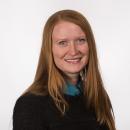

Dr. Laura Hosman is Associate Professor at Arizona State University, holding a joint appointment in the School for the Future of Innovation in Society and in The Polytechnic School. Her action-oriented work focuses on the role for new technologies in developing countries, particularly in education. She brings her passion for experiential learning to the classroom and beyond, through real-world-focused, project-based courses that bring students and student-built technology to the field for implementation. Hosman is also co-founder and director of SolarSPELL, an offline solar-powered digital library for low-resource locations. To date, SolarSPELL (Solar Powered Educational Learning Library) has been deployed to over 365 schools and health care clinics across eight countries in the Pacific Islands and East Africa.


Dr Laura Crommelin a lecturer in the Faculty of Built Environment and a research fellow in the City Futures Research Centre at the University of New South Wales. Her research expertise covers urban planning and policy, housing policy, and urban redevelopment. She is the lead researcher on a recently completed study examining the impact of Airbnb in Australia's major cities, and is also a chief investigator on a new ARC Linkage Grant examining the extent of building defects in multi-unit housing in Sydney. Laura teaches urban development and land law in the Faculty of Built Environment's city planning program, and is currently developing a course on strategies to address urban social justice issues through digital mapping. In addition, she is the Chair of the UNSW Early Career Academic Network, and was previously a NSW Fulbright Scholar (2012-2013), spending 8 months at the University of Michigan.


Lara Ferry is the Associate Dean of Research and Strategic Initiatives for the New College of Interdisciplinary Arts and Sciences and a President's Professor. She holds an academic appointment in the School of Mathematical and Natural Sciences. She is also a senior sustainability scientist with the Julie Ann Wrigley Global Institute of Sustainability, affiliated faculty with the Biodesign Institute and the Global Security Initiative, and honors faculty in Barrett Honors College at Arizona State University.
Prior to joining ASU in 2010, she was a member of the research faculty at San Jose State University and Moss Landing Marine Laboratories. Her research focuses on the evolution of jaws and their function in the aquatic realm, as well as the performance of biological materials.


Associate Professor kylie valentine conducts policy relevant research on human services design and delivery with a focus on families and children. Current and recent projects include the evaluation of the NSW Integrated Domestic and Family Violence Service, a study of best practice in early intervention violence prevention for women and children with disability, a review of Australian Safe at Home projects, and a qualitative study of housing pathways after domestic and family violence.
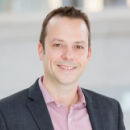

Dr Kris Kilian received B.S. and M.S. degrees in Chemistry from the University of Washington in 1999 and 2003 respectively. He worked for Merck Research Labs in the Methods Development group from 2000-2004 before travelling to Sydney, Australia to do his PhD with Justin Gooding at the University of New South Wales. In 2007, Kris joined the laboratory of Milan Mrksich at the University of Chicago as a NIH postdoctoral fellow to investigate new methods for directing the differentiation of stem cells. He was Assistant Professor of Materials Science and Engineering (2011-2017) and Associate Professor of Bioengineering (2017-2018) at the University of Illinois at Urbana-Champaign before returning to UNSW in 2018 as a Scientia Fellow between the School of Chemistry and the School of Materials Science and Engineering. Kris is renowned internationally for his expertise in the design and development of model extracellular matrices for stem cell engineering and fundamental studies in cell biology.
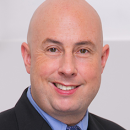

Associate Professor Josh Keller's primary research interest is studying how managers respond to strategic paradoxes, including how to cooperate and compete, how to learn new endeavours and take advantage of knowledge of existing endeavours, and how to be both global and local. He also examines cross-cultural differences in approaches to paradoxes. His work has been published in multiple top-tier managerial journals, including Academy of Management Journal, Organization Science, Organization Studies, Human Relations and Organizational Behaviour and Human Decision Processes.
As the Program Director for the Master of International Business program, Associate Professor Josh Keller oversees curriculum and engagement issues for the program. He is also actively involved in ensuring that international topics are integrated into School of Management student learning at undergraduate and post-graduate levels.
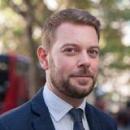

Jonathan Schad is a Lecturer in Strategy and Organisation Theory at King’s Business School. His research focuses on how organizations can manage fundamental competing demands, such as stability and change, short-term and long-term, and profit and purpose. To understand such tensions better, Jonathan draws on and contributes to paradox theory. His work is linked to the grand challenges of our time, such as managing plural stakeholder demands and changes in the environment. Currently, he is very much interested in how the digital age affects organizations and society.
Jonathan's work has been published in strategy and organization theory outlets such as the Academy of Management Annals, the Journal of Management Studies, Strategic Organization, and in The Oxford Handbook of Organizational Paradox (Oxford University Press).
His publications have been impactful in the field of organization theory and Jonathan has won large research grants connected to his work. He reviews for prestigious journals in the field (e.g., Academy of Management Journal, Organization Science, Journal of Management Studies).
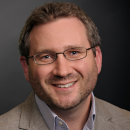

Jonathan Bundy joined the W. P. Carey School of Business in 2016.
Professor Bundy’s research takes a behavioral approach to strategic management and focuses on the social and cognitive forces that shape organizational outcomes and behavior. He specifically investigates crisis and impression management, corporate reputation and other social evaluations, firm-stakeholder relationships, and corporate governance. His work has appeared in field-leading journals, including the Academy of Management Annals, Academy of Management Review, Administrative Science Quarterly, Journal of Management, Organization Science, Personnel Psychology, and Strategic Management Journal.
He received his bachelor’s and master's degrees from the University of New Mexico and his doctorate in strategic management and organization theory from the University of Georgia.
Professor Bundy has been commended for his contributions to research, most recently winning the ASQ Award for Scholarly Contribution (2019). He has also won multiple reviewer awards for his service to various journals and conferences.
He is currently serving as an Associate Editor at Academy of Management Review. He also serves as an International Research Fellow with the Oxford University Centre for Corporate Reputation.
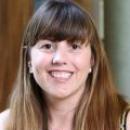

Dr Holly Seale is a Senior Lecturer at the School of Public Health and Community Medicine, at the University of New South Wales. She is the Program Director for the Masters of Infectious Disease Intelligence (PLuS Alliance Program) and is responsible for convening three masters courses including an Internship Program, Current Challenges in Infectious Disease (PLuS Alliance course) and Infection Prevention and Control in the Healthcare Setting. She is a social scientist who focuses on improving engagement and acceptance with a range of infectious disease prevention strategies such as immunization and hand hygiene. Within this program, she examines the socio-cultural aspects that influence engagement and acceptance and formulates interventions to improve compliance. She works closely with a range of professional organizations including the Australasian College for Infection Prevention and Control (ACIPC), hospitals and domestic and international health departments.


Professor Brodaty is a researcher, clinician, policy advisor and strong advocate for people with dementia and their carers. At UNSW Sydney, he is Scientia Professor of Ageing and Mental Health, Co-Director of the Centre for Healthy Brain Ageing, and Director, Dementia Centre for Research Collaboration. He has over 500 publications in refereed journals, is senior psychogeriatrician and Head of the Memory Clinic at POW Hospital.
He was previously President of International Psychogeriatric Association, Chairman of Alzheimer’s Disease International, and President of Alzheimer’s Australia NSW and Australia. He is an officer of the Order of Australia and Ryman Prize winner.


Professor de Leeuw is active in the Healthy Cities movement since 1986. Director of WHO Collaborating Centre for Research on Healthy Cities (1992-2001). She assists WHO regionally and globally in Healthy City evaluation, reporting, accountability. Known for her strong engagement with local health policies and politics and a welcome speaker at local community and global research events. She continues to be WHO European Research Director for Healthy Cities. Recent grant income (CIHR Canada, WHO) for $2M. Evelyne is Editor-in-Chief of the international peer-reviewed journal Health Promotion International and considered a leading global health promotion scholar, as evidenced by her appointments to high-level research panels (e.g., the Academy of Finland, and Science Ministries in Japan and Germany). Published several books (Healthy Cities - WHO and Springer; health promotion political science - OUP; consumer health democratisation - Edward Elgar) and over 120 peer-reviewed articles, plus several dozen book chapters.
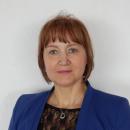

Dr Elena Sitnikova is an academic and researcher, and Program Coordinator for the Master of Cyber Security program at the University of New South Wales (UNSW) Canberra, at the Australian Defence Academy. This Master program is the fastest growing postgraduate program at UNSW Canberra with student numbers increasing from 60 to 350 between 2015 and 2018. In 2018, two courses that Elena coordinates, Cyber Governance and Information Assurance became the first PLuS Alliance offerings from UNSW Canberra to Arizona State University. Elena leads a Critical Infrastructure Protection research group and publishes widely in the area of intrusion detection (IDS) for SCADA control systems cyber security and industrial IoT. Elena is also involved in education research and publishes in the area of engineering and ICT education. Elena is an award winning academic, holding a national Australian Office for Learning and Teaching (OLT) Team Citation award for Outstanding Contributions to Student Learning.
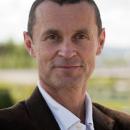

Professor Dag Aarsland joined the Institute of Psychiatry, Psychology and Neuroscience in January 2016, from Karolinska Institutet where he has been professor of clinical dementia research since 2011.
Professor Aarsland is renowned throughout the world in the field of Lewy Body Dementia and Parkinson’s disease but has made contributions across the spectrum of old age psychiatry. He has worked in all aspects of old age psychiatry from basic science to applied health research. He is a natural team player and team-builder and will be a huge asset to the IoPPN and King’s College.
Prof Aarsland contributes to new initiatives including dementia research in our forthcoming bid to renew the Biomedical Research Centre. He also carries out some clinical work within South London & Maudsley NHS Trust and assists in training the next cohort of old age psychiatrists.
Professor Aarsland gained his degree in medicine in 1988 from the University of Oslo. At the same time as he was working as a clinician at Stavanger University Hospital he started to conduct research, gaining his PhD in 1996 with a thesis on language disorders among patients with Alzheimer's disease. In 1998 he became a specialist in psychiatry.
From 2000 to 2002 he was a senior lecturer in geriatric psychiatry at the University of Bergen. He then became an adjunct professor, then professor of geriatric medicine at Bergen from 2006-2009. Between 2007 and 2009 he was a visiting professor at King's College in London, where he has held an honorary professorship since 2009. In 2009 Dag Aarsland became a professor of geriatric psychiatry at the University of Oslo. He is also a director of research at the University of Stavanger's Centre for Age-Related Medicine.
Dag Aarsland was, for several years, director of the Norwegian Neuropsychiatric Association. He has been the recipient of numerous prizes, most recently in 2011 when he was awarded the Western Norway Regional Health Authority's Research Prize.


Professor Chris Hammond has been the Frost professor of ophthalmology at King’s College London and consultant ophthalmic surgeon at Guy’s and St Thomas’ since 2011.
After Cambridge and Oxford Universities, he was a registrar at the Western Eye Hospital, a senior registrar at St Thomas’ and completed his paediatric ophthalmology and strabismus fellowship at Moorfields Eye Hospital.
He was appointed as consultant at Bromley Hospitals NHS Trust in 2000 and was awarded the prestigious NIHR Senior Research Fellowship in 2008 in recognition of his ground breaking research.
Chris has previously been both training programme director and regional adviser for the London Deanery/RCOphth. He is the ophthalmology lead for the London (South) Comprehensive Local Research Network.


Dr Carol Oliver is Deputy Director of the Australian Centre for Astrobiology at the University of New South Wales. She is an Education Focussed continuing academic responsible for transforming a third level face-to-face course in astrobiology into technology-enhanced fully online mode. She is developing two more online courses – one in astrobiology and the other in science communication. She led three Australian government education and outreach grants totalling $5.5m between 2010 and 2015. Her research background is in science communication and she publishes in the education/science communication areas, with a focus on astrobiology and innovation in technology-enhanced online education. She developed Virtual Field Trips in astrobiology with NASA, MIT and ASU and an interactive VFT with UNSW’s iCinema team. She has also developed in adaptive e-learning with Smart Sparrow. She has industry-related experience in science communication - the first third of her career was as a print, radio and television journalist.
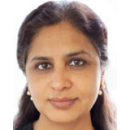

Dr Annapurna Vyakarnam runs a laboratory that probes host pathogen interactions and adaptive immunity pertinent to human immunodeficiency virus (HIV) and HIV-tuberculosis (TB) coinfection, a recognized global health problem by the World Health Organisation. With international funding support, she is currently seconded as a King’s College London staff scientist to the Indian Institute of Science, where she has set up an advanced wet laboratory facility to study HIV-TB coinfection in India, a TB endemic region of the world. At the laboratory in depth functional analysis is conducted of immune cells isolated from HIV/TB-infected subjects, with an aim to deconvolute the adaptive T-cell response and identify novel correlates of protective immunity to both improve understanding of disease process and promote vaccine design and disease monitoring for the treatment of TB and HIV-TB coinfection.
Dr Vyakarnam is the International Lead for School of Immunology & Microbial Sciences at King’s College London.
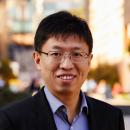

Dr Ang Liu is a senior lecturer at the UNSW Faculty of Engineering and the inaugural Director of the NAE Grand Challenges Scholars Program. His research focuses on engineering design and engineering education, where he has published over 50 journal and conference papers. Dr Liu teaches design thinking to students and design practitioners and was the first Program Manager of the Viterbi iPodia Education program at the University of Southern California. At UNSW he also serves on the Engineering Faculty Board, Engineering Education Innovation Committee, Education Quality Assurance Committee and Humanitarial Engineering Committee. He is closely involved with many professional organisations such as the American Society of Mechanical Engineeers (ASME), the American Society for Engineering Education (ASEE) and after being a Research Affiliate of CIRP (International Academy of Production Engineering) he is currently a nominee for one of the 150 Associate Memberships. Dr Liu is also the General Chair of the 13th Internaitonal Conference on Axiomatic Design in October 2019.
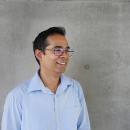

Dr Aditya Rawal was awarded a PhD in 2007 from the Department of Chemistry, The Iowa State University. He is currently a Senior Lecturer at UNSW, and carries out research at the Nuclear Magnetic Resonance Facility within the Mark Wainwright Analytical Centre. His work focuses on the characterization of order and disorder in multicomponent systems such as spider silks, pharmaceutical formulations, metal organic frameworks and lithium-ion batteries. This characterization leads to a deeper understanding of the origin of material properties in these systems. His tool of choice for these investigations is solid state NMR spectroscopy, which enables him to connect common features of molecular dynamics and site-specific chemical interactions among this diverse range of fields. He is deeply involved in developing instrumental and technical capabilities to broaden the impact of NMR spectroscopy to characterize a range of functional materials.


As University Dean for Educational Initiatives and CEO of EdPlus, Phil Regier is responsible for guiding Arizona State University’s expansion into online learning and establishing its leadership role in education innovation. Phil previously served as executive dean at the W.P. Carey School of Business at ASU. He’s also an accounting faculty member and has published research in leading academic journals on postretirement benefits, corporate restructuring and market-based accounting.


Professor Merlin Crossley was appointed Deputy Vice-Chancellor at UNSW Sydney in February 2016. He is a molecular biologist, specialising in human genetic disease. He is also an enthusiastic teacher and science communicator who contributes frequent articles on science, education and policy. Professor Crossley serves on the Trust of the Australian Museum, is Deputy Chair on the Board of the Australian Science Media Centre, sits on the Boards of the Sydney Institute of Marine Science and New South Innovations, is on the Council of the EMBL Australia, and Editorial Board of The Conversation. Professor Crossley undertook his BSc at the University of Melbourne, majoring in genetics and microbiology, moved to Oxford University supported by a Rhodes Scholarship, and then did post-doctoral research at Oxford and Harvard before taking up a position at The University of Sydney where he was Professor of Molecular Genetics 2005-9, Acting Dean of Science 2004, Director of Research for the College of Sciences and Technology 2005, and Acting Deputy Vice-Chancellor Research from 2006-8. In 2010 he began as Dean of Science at UNSW before taking up his current role in 2006.
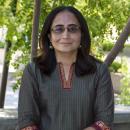

Rimjhim Aggarwal, PhD, is an Associate Professor for the School of Sustainability at Arizona State University. Aggarwal’s research and teaching interests lie at the interface between sustainability science and international development. A central focus of her research has been on examining the links between globalization, resilience of social-ecological systems, and human wellbeing. Currently, Aggarwal is researching the emerging conflicts in the framing of water as a human right as well as an economic, ecological, and social good in rapidly urbanizing regions, with a focus on Delhi, São Paulo, and Johannesburg. She is also working on a National Science Foundation project on “Innovations in Food, Energy and Water Systems.” Aggarwal is a recipient of the Fulbright-Nehru fellowship for India. In recognition of her efforts in "use-inspired research" and "community outreach," she was awarded ASU’s President's Award for Sustainability in 2010. Aggarwal has also worked as a senior consultant for the United Nations University's World Institute for Development Economics Research and the World Bank.
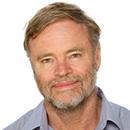

Professor Kingsford is Director of the Centre for Ecosystem Science at UNSW Sydney. Good management of river systems is dependent on good information of the ecological responses and a long history of monitoring the breeding of waterbirds in the Macquarie Marshes is producing dividends. The Macquarie Marshes is now established as the most important site in Australia for the breeding of colonial waterbirds (herons, egrets and ibis). The project monitors the impacts of changing water regimes on the breeding and abundance of waterbirds in the Macquarie Marshes. In October of each year Professor Kingsford conducts an aerial survey to estimate the abundance of waterbirds in eastern Australia. This project is one of the largest surveys of fauna in the world.
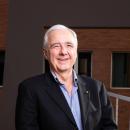

Osvaldo Sala is the Julie A. Wrigley, Regents’ and Foundation Professor, at Arizona State University, where he contributes to both the School of Life Sciences and School of Sustainability. He is also the Founding Director of the Global Drylands Center and the Leader of the Extremes Focal Area, which is part of the Global Futures Laboratory He came to ASU in 2010 from Brown University where he was the founding Director of the Environmental Change Initiative and the Sloan Lindemann Professor of Biology. Dr. Sala has explored several topics throughout his career from water controls on carbon and nitrogen dynamics in arid and semi-arid ecosystems to the consequences of changes in biodiversity on the functioning of ecosystems, including the development of biodiversity scenarios for the next 50 years. He is particularly interested in working with scenarios as a way of simplifying, understanding, and communicating the complex relationships that emerge from the study of social-ecological systems. He has worked in the Patagonian steppe, annual grasslands of California, steppes of Colorado and deserts of Southern Africa and currently he has several experiments in the Southwest of the US from Idaho and Nevada to New Mexico. Osvaldo Sala served in numerous international institutions and in different capacities from the Scientific Committee of Problems of the Environment (SCOPE), where he was the president, to the Millennium Ecosystem Assessment and the IPCC (Intergovernmental Panel on Climate Change). He is currently serving as President of the Ecological Society of America. He has received several recognitions to his academic work including being an elected Member of the American Academy of Arts and Sciences, the Academy of Sciences of Argentina, Fellow of the American Geophysical Union, the American Association for the Advancement of Science and the Ecological Society of America.


Nina McDermott is Head of the English Language Centre at King's College London and has overall responsibility for all programmes run by the Centre. She has worked for many years in the fields of EFL, EAP and Business English in both the UK and Europe. Her current research interests are in the fields of learner autonomy and effective learning in a higher education environment.
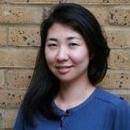

Dr Naho Mirumachi is Lecturer in Geography at the Department of Geography. She has research interests in the politics and governance of the environment, particularly water. Dr Mirumachi has fieldwork experience in the Orange-Senqu River basin in Southern Africa, Ganges River basin in South Asia, and the Mekong River basin in Southeast Asia, and most recently Tanzania.
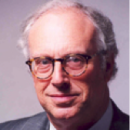

Michael Hanemann, PhD, is the Julie Ann Wrigley Chair in Sustainability, a distinguished sustainability scientist for the Julie Ann Wrigley Global Institute of Sustainability, and professor in the Department of Economics at ASU. Professor Hanemann is also the professor of environmental and resource economics and chancellor’s professor emeritus in the Department of Agricultural and Resources Economics at the University of California, Berkeley, where he has been on the faculty since 1968.
Prior to joining ASU, Hanemann earned a bachelor’s degree from Oxford University in Philosophy, Politics, and Economics and a master’s of science degree in economics from the London School of Economics. He went on to earn his master’s degree in public finance and decision theory and doctorate in economics from Harvard University.
Hanemann’s research interests include behavioral science, economic valuation, and environmental regulation and conservation. He is a member of the National Academy of Sciences and holds an honorary PhD from the University of Vigo, Spain.
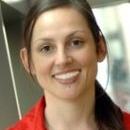

Dr Megan Bowman began her career in Australia as a solicitor at a top-tier commercial law firm and then subsequently at a non-profit environmental law organisation. Her expertise focuses on transnational analyses of commercial and financial regulation, climate finance, corporate ethics, and optimal regulatory design which accounts for both the levers and limits of law and policy.
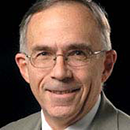

Kerry Smith, PhD, is an emeritus regents’ professor and emeritus professor of economics for the W.P. Carey School of Business as Arizona State University and is a distinguished sustainability scientist for the Julie Ann Wrigley Global Institute of Sustainability. Professor Smith also directs the Center for Environmental Economics and Sustainability Policy in the L. William Seidman Research Institute, which serves as a link between the local, national, and international business communities and the W.P. Carey School of Business.
Before joining ASU in 2006, Smith was a distinguished professor and the director of the Center for Environmental and Resource Economic Policy at North Carolina State University.
Smith is a member of the National Academy of Sciences and a university fellow at Resources for the Future, a nonprofit think tank based in Washington, D.C. He is also a fellow of the Association of Environmental and Resource Economists and of the American Agricultural Economics Association.
Smith has a bachelor’s degree and doctorate from Rutgers University. His research interests include economics, modeling and simulation, land use and land cover, econometrics, climate change and adaptation, and conservation policy.
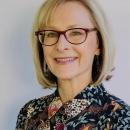

Joni Adamson is a President’s Professor of Environmental Humanities in the Department of English and Director of the Environmental Humanities Initiative (EHI) at Arizona State University. She is the author and/or co-editor of American Indian Literature, Environmental Justice and Ecocriticism (University of Arizona Press, 2001), The Environmental Justice Reader (University of Arizona Press, 2002), American Studies, Ecocriticism, and Ecology (Routledge, 2013), Keywords for Environmental Studies (New York University Press, 2016), Ecocriticism and Indigenous Studies—Conversations from Earth to Cosmos (Routledge 2017) and Humanities for the Environment (Routledge 2017). She lectures internationally and has published over 80 articles, chapters, blogs and reviews. Her work has been supported by many awards and grants, including most recently, the 2019 Benjamin N. Duke Fellowship at the National Humanities Center in North Carolina. She is Secretary General of the Humanities for the Environment global network and served as President of the world’s largest environmental humanities organization, The Association for the Study of Literature and Environment (ASLE), in 2012.
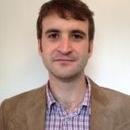

Dr George Adamson is an interdisciplinary geographer with specialisms that span the physical, social and cultural dimensions of geography, particularly climate. His research calls for a greater attention to pre-industrial or 'natural climate variability' and also an appreciation of the deeper historical interrelationship of climate and society.
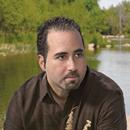

Dr. Vivoni is a hydrologist whose is interested in the interactions of water in the lithosphere, biosphere and atmosphere. His current research focuses on land surface ecohydrological processes in the semiarid southwestern United States and northwestern Mexico, in particular during the summer monsoon season. Current field efforts include a small watershed study of ecohydrological interactions in the Sevilleta National Wildlife Refuge, a regional basin study of the hydroclimatological impact of vegetation greening in the Rio Sonora in Mexico, and the study of the short and long-term effects of vegetation changes on the hydrological response in basins of northern New Mexico. In these studies, field observations and remote sensing data are used in conjunction with a distributed model to explore the underlying hydrological mechanisms and provide relevant predictions at the watershed scale. This research involves data analyses of observations, numerical modeling using parallel computing, and synthesis activities to test relevant hypotheses.


Elizabeth Wentz, PhD, is Dean of Social Sciences in the College of Liberal Arts and Sciences at Arizona State University. Professor Wentz also serves as a Professor and director of the School of Geographical Sciences and Urban Planning and President of the University Consortium for Geographic Information Science.
In 1997, she came to ASU to focus on the design, implementation, and evaluation of Geographic Information Science technologies, such as geographic information systems, remote sensing, and spatial analysis. Wentz's most current projects concentrate on water resource management and urban remote sensing.


David Demeritt is Professor of Geography and is currently one of the editors for 'Environment and Planning A'. He is also a member of the NERC Peer Review College. Professor Demeritt's research interest are in flood risk management and climate change, risk communication, regulation and governance, and environmental politics and policy.


Dave White joined Arizona State University in 2001. He serves as Deputy Director of the Julie Ann Wrigley Global Institute of Sustainability, interim Director of the Rob and Melani Walton Sustainability Solutions Service, Director of the Decision Center for a Desert City, and Professor in the School of Community Resources Development. White is internationally recognized for his contributions to science in support of sustainability. He has published more than 60 peer-reviewed articles advancing numerous fields including decision science, science and technology studies, sustainability science, and natural resources management. His work has also been covered in popular media including The New York Times, Wall Street Journal and National Public Radio.
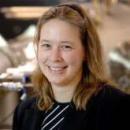

Christiana Honsberg, PhD, joined the electrical engineering faculty at Arizona State University (ASU) in 2008 and is a professor in the School of Electrical, Computer and Energy Engineering at ASU. Professor Honsberg also is a senior sustainability scientist for the Julie Ann Wrigley Global Institute for Sustainability at the university.
Honsberg holds a BS, MS, and PhD from the University of Delaware. Prior to joining the ASU, she was an associate professor and director for the high performance solar power program at the University of Delaware. Honsberg’s research interests include solar energy systems, semiconductors and photodetectors. She currently holds one patent in the US, Japan, and Europe and three patents are pending.
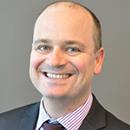

Professor Pettit is the inaugural Chair of Urban Science (2015) at UNSW Sydney, being previously at the University Melbourne (20011-2015). The State Government of Victoria, (2004-2011) and RMIT University (2002-2004). He is responsible for the Digital Cities course at UNSW. He previously developed the Urban Informatics course at the University of Melbourne and was the lead author on the ESRI online virtual campus course in GIS and Planning which attracted more than 3,000 students between 2000 and 2010. His educational background has been focused specifically on the fields of spatial planning and GIS at the undergraduate and postgraduate level. His Ph.D. examined the using of GIS and mapping technologies for undertaking scenario planning at the land parcel level across municipalities. Professor Pettit is closely involved with a number of professional organisations. He is a member of the Surveying and Spatial Sciences Institute (SSSI) and the Planning Institute of Australia (PIA).


Dr. Bruce E. Rittmann is Director of the Biodesign Swette Center for Environmental Biotechnology and Regents' Professor of Environmental Engineering. Dr. Rittmann's research involves formig=ng partnerships with microbial communities so that the communities provide valuable sustainability services, such as cleaning up pollution, generating renewable resources, and improving human health. Dr. Rittmann is a member of the U.S. National Academy of Engineering, a Distiguished Member of the American Society of Civil Engineers, and winner of the 2018 Stockholm Water Prize.
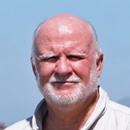

B. L. Turner II took his B.A. and M.A. degrees in geography from the University of Texas at Austin in 1968 and 1969 respectively, and his Ph.D. in geography from the University of Wisconsin-Madison in 1974. At ASU he is the Gilbert F. White Professor of Environment and Society. Turner came to ASU after 28 years in the Graduate School of Geography, Clark University, where he was Higgins Professor of Environment and Society, served as Director of that School for more than decade, and helped to create and administer the George Perkins Marsh Institute, which engages a range of human-environment problems. Professor Turner is currently engaged in land change science focused especially on deforestation and sustainability in the southern Yucatán. Turner continues to engage in large range of research activities focused on the theme of human-environment relationships. These range from those of the ancient Maya peoples of Mesoamerica, to smallholder farming behavior in the tropics, to tropical deforestation and sustainability. A significant portion of this work combines natural, human and remote sensing/geographical information sciences to address problems of human-environment systems, including: land change science, sustainability science, cultural and political ecology, global environmental and climate change.
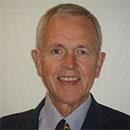

Stephen Challacombe is a Professor of Oral Medicine Department of Mucosal & Salivary Biology at the Dental Institute. He has a long term enthusiasm for clinical and translational research and has supervised (and examined!) many PhD students in the fields of mucosal immunology, oral microbiology and oral medicine, fields in which he has published extensively. He has a long term interest in oral manifestations of HIV and chairs an international steering committee which oversees world workshops embracing basic, translational and clinical research in HIV and which has led to an internationally accepted classification on the oral manifestations.
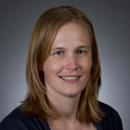

Dr. Sarah Stabenfeldt received her B.S. in Biomedical Engineering from Saint Louis University and her Ph.D. in Bioengineering from Georgia Institute of Technology. She was awarded an NIH NRSA pre-doctoral fellowship for her doctoral thesis research on developing neural tissue engineering therapies for traumatic brain injury. As a NIH post-doctoral fellow at Emory University School of Medicine and Georgia Tech, she investigated fibrin-derived peptide-protein binding interactions, designing fibrin-based wound healing therapeutics. She joined Arizona State University’s School of Biological and Health Systems Engineering as an Assistant Professor in 2011 and leads her research team in developing regenerative medicine strategies for acute neural injury. Since joining ASU, Sarah has been awarded the Arizona Biomedical Research Consortium Early Stage Investigator Award, the NIH Director’s New Innovator Award, and NSF CAREER Award.


Dr Harding is a Reader in Palliative Care at King's College London and has a number of collaborations with African palliative care leaders that has brought change in outcome measure for research and clinical practice as well has significantly grown the evidence base. Dr Harding’s research areas include outcome measurement and tool validation, HIV/AIDS, heart failure, family caregivers, sub-Saharan Africa, Global Health, audit and quality improvement, mixed methods, intervention development and testing.
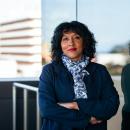

Professor Raina MacIntyre (MBBS Hons 1, M App Epid, PhD, FRACP, FAFPHM) is Head, School of Public Health and Community Medicine, UNSW and Professor of Infectious Diseases Epidemiology. She leads a research program in control and prevention of infectious diseases, spanning epidemiology, biosecurity, risk analysis, personal protective equipment, vaccinology, mathematical modelling, public health and clinical trials. Her global health research includes collaborations in India, Vietnam and China. She has over 300 peer reviewed publications in peer reviewed journals. She has received many awards including the Sir Henry Wellcome Medal and Prize from the Association of Military Surgeons of the US in 2007 for her work on bioterrorism, the Public Health Association of Australia’s National Immunisation Award in 2014, and the 2003 Frank Fenner Award for Research in Infectious Diseases. She has sat on numerous national and international expert committees and editorial boards in her field, including the US IOM. She currently heads a NHMRC Centre for Research Excellence in Epidemic Response and UNSW Vaccine and Infections Research Lab (UNSW-VIRL). She is also a founding director of ARM, Australia’s only national epidemic response network. She is an adjunct professor at Arizona State University and in this role is the UNSW lead in collaborative research and teaching in public health security within the PLuS Alliance.


Matthew Scotch is Associate Professor in the College of Health Solutions and Assistant Director of the Biodesign Center for Environmental Health Engineering at ASU. He is also Senior Visiting Fellow at UNSW’s Kirby Institute where he did his sabbatical with Dr. Raina MacIntyre (PLuS Fellow) in 2018. His focus within PLuS is in global health and biosecurity of infectious diseases including influenza and SARS-CoV-2. He has collaborated with PLuS Fellows Raina MacIntyre (UNSW) and Kathleen Steinhofel (KCL) on avian influenza risk. This work has been funded by the PLuS Alliance through seed grants and accelerator awards.
His research focuses on virus phylogeography to study the spread of RNA viruses with a focus influenza A viruses. His lab group is also interested in the molecular epidemiology of RNA viruses including the amplification and next-generation sequencing (NGS) of influenza A genes for studying spread among avian and human hosts.
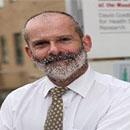

Martin Prince is Professor of Epidemiological Psychiatry at the IoPPN and joint Director of the Centre for Global Mental Health, a collaboration between King’s and the London School of Hygiene and Tropical Medicine. His research focuses on mental health priorities in developing countries, with a strong focus on capacity building in policy, prevention, treatment and care of mental illness worldwide. He coordinates the 10/66 Dementia Research Group, a network of researchers from around the world, working together to promote research into dementia in low and middle income countries.
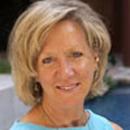

Dr. Larkey’s research interests include testing theory-based methods of communicating health messages to underserved/low-income populations, community-based participatory research practices, and examining mind-body methods of alleviating symptoms in cancer survivors.
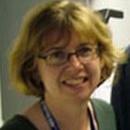

Dr Linda Klavinskis is Vice-Dean of Postgraduate Research, Faculty of Life Sciences & Medicine. Her research interested are in both understanding and exploiting basic mechanisms by which dendritic cells control innate and adaptive immunity in the context of developing effective adjuvants for clinical use, and vaccines for infectious diseases such as HIV and Influenza A virus.


Professor Irene J Higginson is Head of Department, Head of Division and Director of Cicely Saunders Institute, the first purpose built institute for research into palliative care. Professor Higginson has research interests and publications in the following areas: quality of life and outcome measurements, evaluation of palliative care especially of new services and interventions, epidemiology, clinical audit, effectiveness, psychosocial factors and care, symptom assessment, cachexia/anorexia, and elderly care.
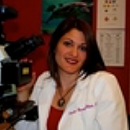

Heather Bimonte-Nelson, PhD, joined the College of Liberal Arts and Sciences at ASU in 2005 and is a Professor and behavioral neuroscience program director for the Department of Psychology. Her laboratory focuses on the cognitive and brain changes that occur during aging, develops strategies to attenuate mnemonic and neurobiological age-related alterations, and researches the role sex and hormones play in the brain and cognition during aging and neurodegenerative disease.
Bimonte-Nelson is a member of the Scientific Advisory Board for the Arizona Alzheimer’s Consortium and has received numerous awards, including the Arizona Alzheimer’s Consortium Outstanding Young Investigator Award and the Outstanding Teacher Award from the City of Phoenix for mentoring high school students in the laboratory.
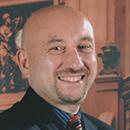

Dr. Flavio Marsiglia is Regents’ Professor and Foundation Professor of Cultural Diversity and Health at Arizona State University School of Social Work, Watts College. He is the Principal Investigator of a Specialized Center (U54) on health disparities research, located at the Southwest Interdisciplinary Research Center (SIRC) and funded by NIMHD/NIH. The U54 is developing and testing obesity, diabetes and substance abuse prevention interventions with Latinx and urban American Indian youth and families. Since 2016, Dr. Marsiglia is the director of the Global Center for Applied Health Research (GCAHR). The Global Center conducts intervention health research and training in partnership with universities and communities in Mexico and other Latin American nations as well as in Africa, Asia and Europe. Dr. Marsiglia serves as the Principal Investigator of a five yearlong NIDA R01 award to adapt and test a substance abuse prevention intervention for youth in Mexico. He is working in partnership with colleagues at UNSW and urban aboriginal communities in Australia to implement and test a culturally congruent substance abuse prevention program.


Dr Dylan Owen is a Senior Lecturer, joint between the Department of Physics and the Randall Division of Cell and Molecular Biophysics. His research interests are in the structure and function of the cell membrane and how this regulates cellular signalling events.
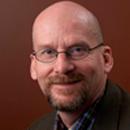

Dr. Coon has a PhD in Counseling Psychology from Stanford University, a MEd from University of Oklahoma, and a BA in Foreign Service/Public Affairs, from the University of Oklahoma. His research interests include design, evaluation, and translation of effective psychosocial interventions for midlife and older adults facing chronic illness (e.g., Alzheimer's disease, cancer, HIV/AIDS) and their family caregivers.
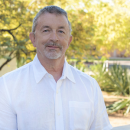

Dr. Brian H Smith is a Trustees of ASU Professor in the School of Life Sciences at ASU, and his field of research is in Behavioral Neuroscience. His research uses insects, mice and humans to study odor guided behaviors and olfactory processing in the brain, specifically in relation to how memories are encoded for important associations with odors in an animal’s environment. Much of his work has involved development of, and participating in, teams of researchers who bring different skills to bear on research questions that require multidisciplinary approaches. As important as this kind of approach is in modern day science, it is still not completely integrated into training for PhD and postdoctoral researchers. His recent role in the PLuS Alliance has been to participate in development of a training program to help early career researchers understand how to formulate important questions, and then build cross-disciplinary and cross-cultural teams to solve those kinds of problems. This work includes development of a sense of entrepreneurship to apply any solutions to improve societal conditions.
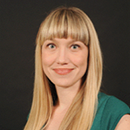

Amber Wutich is a President’s Professor of Anthropology and Director of the Center for Global Health at Arizona State University. Her two decades of community-based fieldwork are concerned with how inequitable and unjust resource institutions impact people’s well-being, especially under conditions of poverty. An expert on water insecurity and mental health, she directs the Global Ethnohydrology Study, a cross-cultural study of water knowledge and management. Wutich maintains longstanding ties in fieldsites in Paraguay and Bolivia. An ethnographer and methodologist with over 120 peer-reviewed publications, Wutich co-edits the journal Field Methods and co-authored Analyzing Qualitative Data (2016, SAGE). Her teaching has been recognized with awards such as Carnegie CASE Arizona Professor of the Year. Wutich has raised over $34 million in research funds, as part of collaborative teams, from NSF, USDA, and other funders. Wutich’s latest book is Lazy, Crazy, and Disgusting: Stigma and the Undoing of Global Health (2019, JHUP).
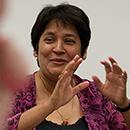

Yasmin Saikia, PhD, is a Professor of History and the Hardt-Nickachos Chair in peace studies at the Center for the Study of Religion and Conflict at Arizona State University. Prior to joining ASU in 2010, professor Saikia taught at the University of North Carolina – Chapel Hill and Carleton College, Minnesota. She has strong ties with the academic community in India, Pakistan, Bangladesh, and Malaysia.
Saikia’s research and teaching interests straddle peace studies, history, and religion with a focus on gender issues, conflict transformation, and Islamic values.


Dr. Paul Westerhoff is a full professor in the Civil, Environmental and Sustainable Engineering program in the School of Sustainable Engineering and the Built Environment, which is part of the Ira A. Fulton Schools of Engineering at Arizona State University and currently serves as a Senior Advisor on Science and Engineering to the ASU Provost. Westerhoff obtained a Ph.D. from the University of Colorado at Boulder, a MS from University of Massachusetts and BS from Lehigh University. Westerhoff leads research funded by AWWARF, USEPA, NSF, DOD and local organizations investigating the fate of nanomaterials in water, use of nanomaterial-based technologies for water and reuse treatment, reactions and fate of oxo-anions (bromate, nitrate, arsenate) during water treatment, characterization, treatment and oxidation of natural organic matter in watersheds, formation of disinfection by-products, removal of taste and odor micropollutants. Westerhoff has received several research awards including the 2013 AEESP/Arcadis Frontier in Research Award, 2005 ASCE Walter L. Huber Research Award and the 2006 WEF Paul L. Busch Award.
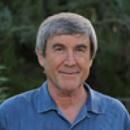

Dr. Davies is a British-born theoretical physicist, cosmologist, astrobiologist and best-selling author. He is Regents' Professor and Director of the Beyond Center for Fundamental Concepts in Science, co-Director of the Cosmology Initiative, and Principal Investigator in the Center for the Convergence of Physical Science and Cancer Biology, all at Arizona State University. He helped create the theory of quantum fields in curved spacetime, with which he provided explanations for how black holes can radiate energy, and what caused the ripples in the cosmic afterglow of the big bang. In astrobiology, he was a forerunner of the theory that life on Earth may have come from Mars. He is currently championing the theory that Earth may host a shadow biosphere of alternative life forms. In addition to his research, Davies is known as a passionate science communicator, and is in demand world-wide for media appearances and public presentations.


Dr Kyle Dyer is a Senior Lecturer in Addiction Science at Kings College London, and the Academic Lead for Education and Training within the Department of Addiction (KCL). Dr Dyer’s research interests include the application of oral fluid for therapeutic drug monitoring, harms associated with the use of methamphetamine, the relationship between alcohol and drug concentration and psycho-behavioural and cognitive impairment and factors impacting upon the translation of research into practice.
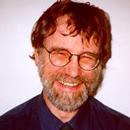

Dr. Kurt VanLehn is the Diane and Gary Tooker Chair for Effective Education in Science, Technology, Engineering and Math in the Ira A. Fulton Schools of Engineering at Arizona State University. He received a Ph. D. from MIT in 1983 in Computer Science, was a post-doc at BBN and Xerox PARC, joined the faculty of Carnegie-Mellon University in 1985, moved to the University of Pittsburgh in 1990 and joined ASU in 2008. He founded and co-directed two large NSF research centers (Circle; the Pittsburgh Science of Learning Center). He has published over 125 peer-reviewed publications, is a fellow in the Cognitive Science Society, and is on the editorial boards of Cognition and Instruction and the International Journal of Artificial Intelligence in Education. Dr. VanLehn's research focuses on intelligent tutoring systems, classroom orchestration systems, and other intelligent interactive instructional technology.


Dr Jim Bjork is a Lecturer in Modern European History and is Joint Review Editor on the Journal of Contemporary History. He has previously taught as a Visiting Assistant Professor in the US at the universities of Notre Dame, Rice, and Colgate. Dr Bjork's primary research and teaching interests are the social history of religion and the history of nationalisation in modern Europe.


Dr Jenny Driscoll is the Child Studies Lecturer and Programme Director and Barrister at Law. Her research interests cover the protection and rights of vulnerable children, in particular the child protection ‘system’; the education of looked-after children; ethical issues arising from research with vulnerable children and young people; and the implementation of the United Nations Convention on the Rights of the Child in the UK. She has recently completed a longitudinal study of the educational transitions of looked after young people aged 15-18.


Carolyn M. Warner is a Professor of Political Science in the School of Politics and Global Studies at ASU. Warner’s research and teaching areas are religion and politics, and the political economy of corruption. The common thread is a long-standing interest in the role of beliefs and institutional structures in shaping the behavior of religious organizations, politicians and firms. Her recent work on religion has studied two facets of it, focusing on its role in conflict, on the one hand, and in social welfare on the other. Her work on corruption has examined how political and economic competition in the European Union has created incentives and opportunities for corruption, rather than reducing corruption. She is working on a new project about the politics of sex abuse in the Catholic Church and military in the United States, Australia and the United Kingdom, looking particularly at how and why the institutions handle (or mishandle) cases of sex abuse and sexual assault as they do, and whether and, if so, how the state and civil society call the institutions to account.


Professor Anna Reading is Head of the Department of Culture, Media & Creative Industries. Her interdisciplinary research examines broader questions of social and cultural continuity and transformation with an emphasis on: digital methodologies, materialities and knowledge practices, cultural heritage and collective memory rights, gender and memory, cultural memories of nonviolent struggle, cultural memories of the holocaust and genocide, mobile and social witnessing of terrorism and atrocity.
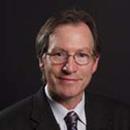

Dr. Goodnick is Deputy Director of ASU LightWorks. Steve Goodnick is an expert in solid-state device physics, semi-conductor transport, quantum and nanostructure devices and device technology, and high frequency devices. Goodnick is also the director of Arizona Institute for Renewable Energy (AIRE). Goodnick previously served as the interim deputy dean for the Ira A. Fulton School of Engineering at ASU, and earlier as chair of the Fulton School’s Department of Electrical Engineering, and served as President of the Electrical and Computer Engineering Department Heads Association from 2003-2004. Germany, Japan and Italy are among the countries he has served as a visiting scientist. Goodnick is a Fellow of the Institute of Electrical and Electronics Engineers (IEEE) and an Alexander von Humboldt Research Fellow. Other honors and awards he has received include the IEEE Phoenix Section Society Award for Outstanding Service (2002), the Colorado State University College of Engineering Achievement in Academia Award (1998), and the College of Engineering Research Award (Oregon State University, 1996). His publication record includes more than 165 refereed journal articles, books and book chapters related to transport in semiconductor devices and microstructures.


Michael Luck is Professor of Computer Science and Executive Dean of the Faculty of Natural and Mathematical Sciences. He was Head of the Department of Informatics from 2011 to 2013, where he also works in the Agents and Intelligent Systems group, undertaking research into agent technologies and intelligent systems. He is Scientific Advisor to the Board for Aerogility. His research interests centre on intelligent agents, multi--agent systems, norms and institutions, trust and reputation and agent-oriented software engineering
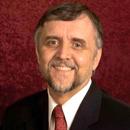

Mark Henderson is professor of Engineering at Arizona State University at the Polytechnic campus. He received the MS degree in biomechanical engineering and the Ph.D. in mechanical engineering (CAD) from Purdue University. Henderson was named a Presidential Young Investigator from 1985-90 and is co-author of the textbook, Computer-Integrated Design and Manufacturing. His major research includes 60 papers in computer-aided design and global engineering and he serves on the editorial board of The Journal of Computer-Aided Design (CAD). Henderson is on the founding faculty of an engineering program at ASU's Polytechnic campus. He is also co-founder of the InnovationSpace, a new approach to transdisciplinary product development and entrepreneurship. Henderson's interests extend across typical disciplinary boundaries and include global design teams, innovative product design, computer graphics, CAD and rapid prototyping.


Professor Luca Viganò is a Professor in Computer Science (Software Modelling and Applied Logic). He is also ViceDean (International) for Natural and Mathematical Sciences, promoting international collaboration throughout the Faculty. His research interests include formal Methods for security, security logics, security testing, and labelled deduction for non-classical logics (modal logics, sub structural logics, etc.) and the combination of logics.
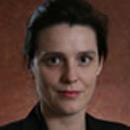

Dr. Erica Forzani is Assistant Professor of Chemical Engineering Program as well as joint faculty in the Mechanical Engineering Graduate Program in the School for Engineering of Matter, Transport, and Energy at Arizona State University (SEMTE). Dr. Forzani also has a joint appointment with ASU’s Center for Bioelectronics & Biosensors (CBB) at The Biodesign Institute, and she is Deputy Director of CBB. Dr. Forzani’s current research interests are the development of novel hybrid chemical and biosensors and the integration of sensors into wireless, non-invasive and inexpensive sensor devices. She is focused on health applications, and environmental health and safety. Currently, she has over 40 peer-reviewed publications, seven patent applications and two transferred intellectual properties. In addition, she has served as Guest Editor of Nanotechnology Journal, and is member of the Editorial Board of the Journal of Biosensors and Bioelectronics. As the holder of 10 patents and 11 patents pending she has been recognized by the National Academy of Inventors for her contribution to to science and society and became a senior member in February 2021.
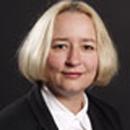

Dragica Vasileska joined the ASU faculty in August 1997. She has published over 130 articles in refereed journals, book chapters, and in conference proceedings in the areas of solid-state electronics, transport in semiconductors, and semiconductor device modeling. She has also given numerous invited talks. She is a member of IEEE, the American Physical Society, and Phi Kappa Phi.
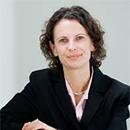

Professor Diana Bowman is an associate professor in the School for the Future of Innovation in Society and the Sandra Day O’Connor College of Law. Her research analyzes and informs the development of smarter governance and regulation of innovation in order to simultaneously enhance creativity, improve public health, and stimulate deliberation of the ethical, legal, and societal dimensions of emerging technologies.
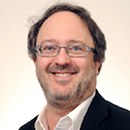

David Guston, PhD, is the founding director of the School for the Future of Innovation in Society and interim co-director of the Institute for the Future of Innovation in Society at Arizona State University. Professor Guston is co-director of ASU’s Consortium for Science, Policy, and Outcomes, where he is principal investigator and director of the Center for Nanotechnology in Society. He also is a senior sustainability scientist for the Global Institute of Sustainability at ASU.
Guston’s research interests include societal aspects of emerging technologies, responsible innovation, anticipatory governance, technology assessment, and public engagement in science and technology. He is published and cited on research and development policy, technology assessment, public participation in science and technology, and the politics of science policy. His book, Between Politics and Science: Assuring the Integrity and Productivity of Research was awarded the Don K. Price Prize by the American Political Science Association for best book in science and technology policy. In addition to co-authoring several publications, Guston is also the founding editor-in-chief of the Journal of Responsible Innovation.
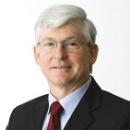

Professor Chris Roberts Is the first PLuS Alliance Professor, a role which will facilitate PLuS Alliance activities through innovation and entrepreneurship. Professor Roberts has extensive experience in the biomedical devices industry, and previously led one of the major companies in this area, Cochlear, an Australian-based multinational. He has also had experience in renal (dialysis), orthopaedics (electrical bone growth simulation), cardiology (pacemakers) and respiratory and sleep medicine (CPAP and ventilation). Each of these areas has been driven by innovation on a global scale. Professor Roberts is a non-executive director of ResMed Inc and a member of the Jobs NSW Board, NSW Innovation and Productivity Council, Monash University Industry Council of Advisors, University of Technology Sydney Vice-Chancellor’s Industry Advisory Board, UNSW’s Faculty of Medicine Advisory Council, the Health Innovation Advisory Committee (a principal committee of the National Health and Medical Research Council), and a member of the Board of Governors of the Centenary Institute of Cancer Medicine and Cell Biology. He holds a BE (Honours) in chemical engineering (UNSW), an MBA (Macquarie University) and a PhD (UNSW) and has been awarded Honorary Doctor of Science degrees from both Macquarie and UNSW. He was recipient of the Charles Copeman Medal from the HR Nicholls Society for service to freedom of employment and is also a Fellow of the Academy of Technological Sciences and Engineering, a Fellow of the Australian Institute of Company Directors and Honorary Fellow of the Institution of Engineers Australia. In 2015, he was Engineer Australia’s Professional Engineer of the year.
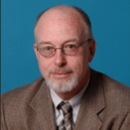

Barry Bozeman, PhD, is Arizona Centennial Professor of public management and technology policy and the director of the Center of Organizational Research and Design at Arizona State University. Bozeman also serves as the director of the School of Public Affairs.
Most of Bozeman’s research primarily focuses on public management, organization theory, and science and technology policy. His practitioner experience includes a position at the National Science Foundation’s Division of Information Technology and a visiting position at the Science and Technology Agency’s National Institute of Science and Technology Policy. He also has served as a consultant to a variety of federal and state agencies in the US, including the Internal Revenue Service, the Department of Commerce, the National Science Foundation, and the Department of Energy. Bozeman has helped in the design and evaluation of the national innovation systems of the Republic of South Africa, Canada, New Zealand, France, Israel, Chile, and Argentina.


Professor Anna Scaglione’s expertise spans the areas of statistical signal processing for communication, electric power systems and information networks. Her main research objective is advancing intelligent infrastructure, through information systems and data analysis. Specific topics include decentralized information processing in sensor networks and among social agents as well as cyber-security and demand response for reliable energy delivery. She is a fellow of the IEEE, recipient of the 2013 IEEE Fink Award and 2000 Best paper award in the IEEE Signal Processing Society.
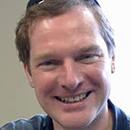

Andrew Maynard, PhD, is a Professor in the School for the Future of Innovation in Society at Arizona State University and director of the Risk Innovation Lab, a unique center focused on transforming how we think about and act on risk, in the pursuit of increasing and maintaining value. Professor Maynard was previously chair of the Environmental Health Sciences department at the University of Michigan.
Maynard’s research and professional activities focus on risk innovation and the responsible development and use of emerging technologies, including nanotechnology and synthetic biology. He is widely published and has a regular column for the Journal of Nature Nanotechnology. Maynard has served on National Academy panels and has testified before congressional committees. He is co-chair of the World Economic Forum Global Agenda Council on Nanotechnology and is a member of its metacouncil.